Herbal Medicine
Herbal medicine is a treatment method that uses plants’ healing properties by concentrating them into different forms in order to heal various diseases or improve general well being. It is among the oldest known systems of care.
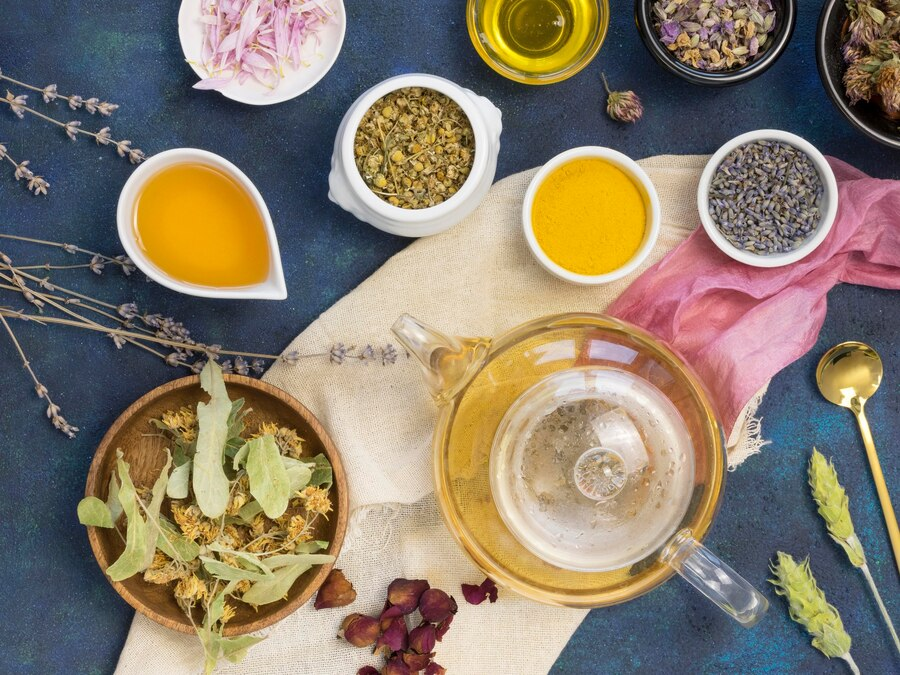
Herbs have served a medicinal purpose for a great number of years. However some of their uses are now being validated with scientific studies. There is considerable amount of focus on studying the efficacy of the herbs for various disease conditions and its concomitant uses with the mainstream therapies. Hence, what does the current scientific publication disclose on the topic of herbal medicine today?
What does research say about the effectiveness of herbal medicine?
Research states that the effectiveness of herbal medicine has scientifically proven benefits, such as turmeric’s anti-inflammatory properties and echinacea’s immune-boosting effects. Clinical studies have confirmed the efficacy of certain herbs for treating conditions like digestive issues, stress, and infections, highlighting the potential for herbal medicine in healthcare.
For instance, the studies involving turmeric in India showed that curcumin, the active ingredient, possessed some anti-inflammatory properties that encouraged arthritis patients in arthritis management. Echinacea, for instance, has been alleged to enhance the body’s resistance system and hence reduces both the duration and severity of colds. Such findings help in the appreciation of how otherwise herbal medicine which is also aimed at enhancing quality of life can be used together with conventional medicine.
How does modern science validate traditional herbal remedies?
Modern science validates traditional herbal remedies by studying active compounds in plants through clinical trials. Researchers isolate key components like curcumin in turmeric or allicin in garlic, proving their medicinal effects. This scientific backing strengthens the use of traditional herbs in modern healthcare.
More so, they are not confined, as many such herbal medicines that have been used from ancient times, are supposed to be tested. For example, allicin, a compound in garlic that has been used for ages as a heart remedy has been known to lower cholesterol level. Such studies connect age old wisdom with current age science so that herbs can be properly integrated well into contemporary medicine in which most people want to use such.
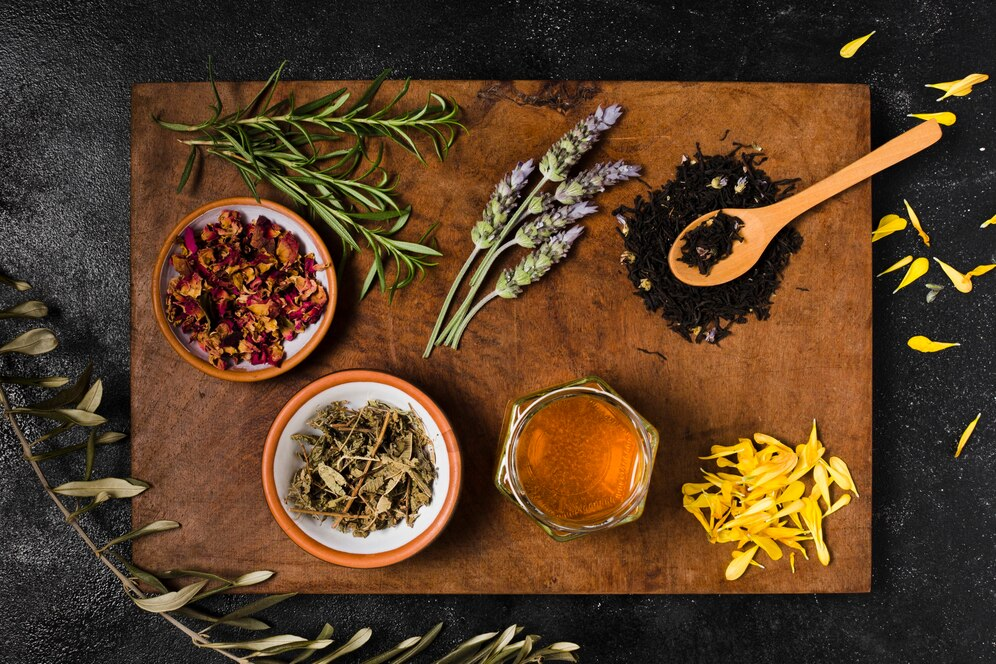
What role does research play in ensuring the safety of herbal medicine?
Research plays a crucial role in ensuring the safety of herbal medicine by testing for potential side effects, interactions, and toxicity. Studies help determine safe dosages and identify any risks when combining herbs with medications, making herbal treatments more reliable and regulated for public use.
In-depth studies help determine over dosage for specific herbs thereby establishing safety profiles. For example, even though St John’s Wort provides treatment to minimal depression, studies have demonstrated its ability to interact with other drugs. Such research establishes its usefulness enhancing the safety of combining herbalism and modern medicine.
Are there scientific studies supporting the use of herbal medicine for chronic conditions?
Numerous scientific studies support the use of herbal medicine for chronic conditions like arthritis, diabetes, and hypertension. For instance, turmeric and ginger have shown anti-inflammatory effects, while cinnamon helps regulate blood sugar. These studies demonstrate herbal medicine’s potential for managing long-term health issues.
In the case of arthritis, curcumin derived from turmeric has been extensively researched for its capacity to alleviate joint swelling and pain. Likewise, people with type 2 diabetes have been shown improvement in blood sugar levels due to use of cinnamon. These results imply that herbs can be of help in the treatment of chronic illnesses in addition to conventional treatment.
How does research address the quality and standardization of herbal supplements?
Research addresses the quality and standardization of herbal supplements by testing for purity, potency, and the presence of active compounds. Scientific studies ensure that herbal products meet safety standards and contain accurate dosages, helping consumers access reliable, high-quality supplements for their health needs.
Standardization makes sure that all the numerous formulations of a supplement contain a fixed amount of a primary compound, like a fixed concentration of curcumin in all turmerics. Others consider the elimination of impurities or polydrug formulation in the supplements panacea. Through quality assessment and standardization, research improves the quality of herbal products.
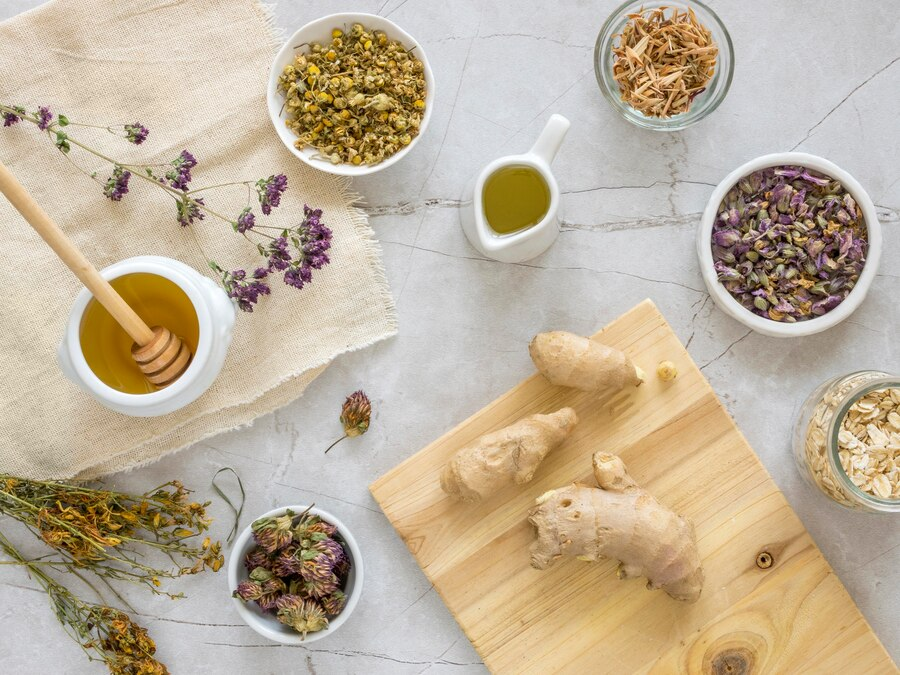
How does research support the integration of herbal medicine into modern healthcare?
Research supports integrating herbal medicine into modern healthcare by demonstrating its effectiveness in clinical trials. Studies highlight how herbs can complement conventional treatments, offering additional benefits like reduced side effects, improved patient outcomes, and holistic care options in integrative medicine practices.
Studying the effects of such natural remedies in an evidence-based way on patients has led to valuable findings. Steps like these make health care practitioners appreciate the use of natural remedies in the management of diseases via herbal medicine.
What challenges does research face in studying herbal medicine?
Research on herbal medicine faces challenges such as variability in herb quality, lack of standardization, and difficulty conducting large-scale clinical trials. These factors can complicate results, making it hard to generalize findings. However, ongoing research is helping to overcome these barriers, improving the credibility of herbal medicine.
Another challenge comes in the quality defect of a given herbal product with the different ways of farming and processing of the herbs. Further, most herbal work is hampered by lack of adequate funds owing to the low sale of herbal products because of more generics than branded ones. Notwithstanding, they further are some standardization of herbal medication and more scientifically convincing studies to back the assertions being made.
Conclusion
In the research of herbal medicine, studies have been focused on establishing the selectiveness of herbal medicine, and there is a progression in the acceptance of traditional medicine as complementary to modern medicine. As more studies on the pharmacological actions and the medicinal plant quality evaluation are conducted, more logical proof will be shown for herbal medicine. As progression in this field is more acquired, herbal medicine in treatment will be more focused in complete treatment approaches.
Herbal Medicine
Herbal medicine is a treatment method that uses plants’ healing properties by concentrating them into different forms in order to heal various diseases or improve general well being. It is among the oldest known systems of care.
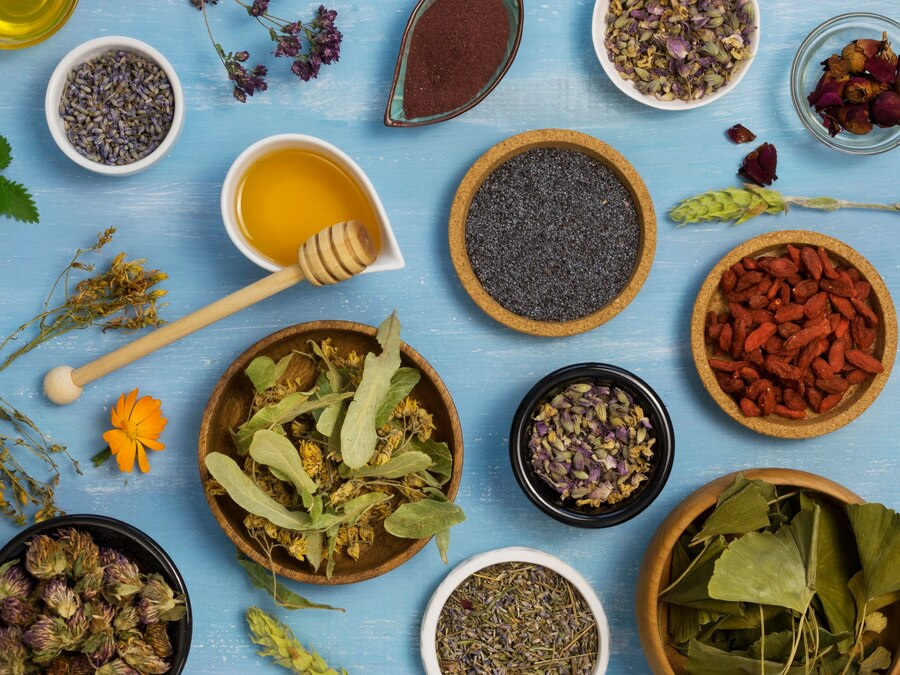
The term herbal medicine refers to the knowledge and skills applied for the use of plants for healing a sick individual. It, hence, attempts to rectify the disorganization within the human body boils or other natural sources. According to what has been understood, the methods on how to do and use these may enhance the level of health and awareness of the individual.
What is the basis of herbal medicine?
The basis of herbal medicine is to use plants and herbs to promote healing and balance in the body. It treats the root causes of illness, using natural remedies to support the body’s systems. Herbal medicine has been practiced for centuries in various cultures for holistic health care.
Herbal medicine focuses on the application of natural treatment resources from the plant kingdom such as twigs, stems, roots, flowers, etc., to treat diseases. As it does not suffice to merely alleviate the comfort of the patient, much more attention is paid to curative rather than palliative measures. Specific herbal regimens may amplify the systems of the body’s autocracy and direct it towards the restoration as opposed to suppression which makes it effective in the long run.
How does herbal medicine differ from conventional medicine?
Herbal medicine differs from conventional medicine by focusing on natural remedies and holistic approaches. While conventional medicine often treats symptoms with drugs, herbal medicine seeks to restore balance using plant-based solutions. Herbal medicine also emphasizes prevention and long-term wellness.
While allopathic treatment regimes tend to concentrate their efforts on finding drugs that will relieve specific symptomatology, herbal therapies are more systemically oriented. For instance, herbs are administered to fortify the systems of the body and to curb the incidence of any disease. Because of this contrast of focus, herbal medicine tends to offer health promotion rather than mere effect treatment among the patients.
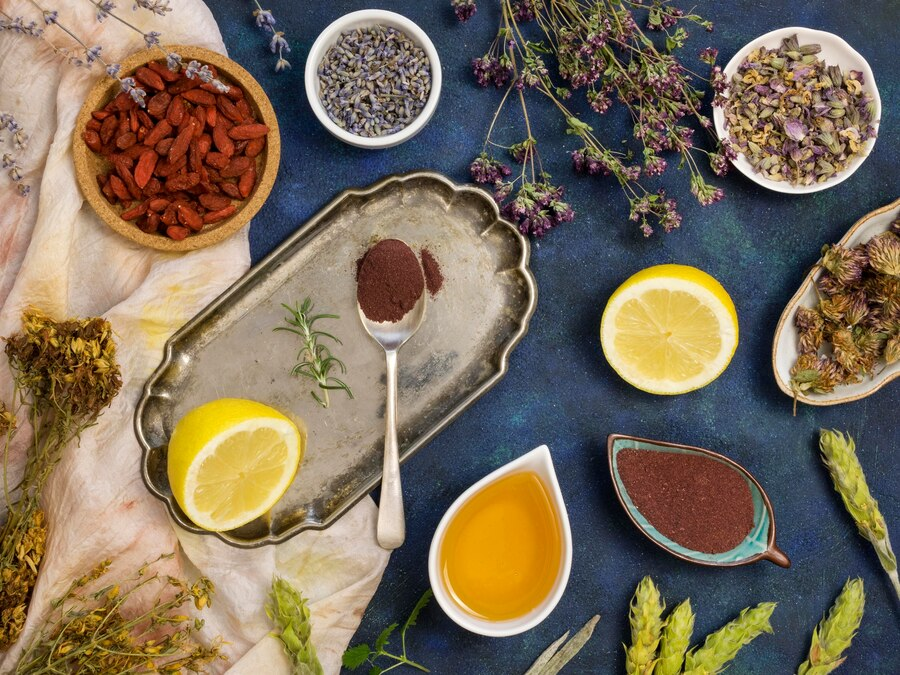
What are the key benefits of herbal medicine?
The key benefits of herbal medicine include its natural, gentle approach to healing, fewer side effects, and its ability to treat the whole person. Herbal remedies are often personalized, focusing on long-term health and prevention, rather than just addressing immediate symptoms.
Herbal preparations are often embraced mainly due to their few adverse effects and a mild approach to the management of long-term and short-term ailments. Complementary to these benefits, herbs, such as turmeric, echinacea, and ginger have anti-inflammatory, immune-enhancing, and digestive properties. In conjunction with lifestyle changes and practice, it is herbal medicine that promotes holistic, sustainable health.
How are herbal medicines typically prepared?
Herbal medicines are typically prepared as infusions, decoctions, tinctures, or powders. Infusions involve steeping herbs in hot water, while decoctions are made by boiling tougher plant parts. Tinctures use alcohol to extract the active ingredients, and powders are made by drying and grinding herbs for easy use.
Such preparation methods are employed depending on the plant material to be used like infusion for herbs that are less harsh such as flowers or leaves, while decoction is for tougher plants like bark and roots requiring boiling. Most liquid extracts such as tinctures have been found to possess more efficacy than other herbal preparations, meanwhile, powders ease people’s daily intake of herbs. All such methods have been invented in order to achieve maximum use of the given herb from the standpoint of medicine.
How does herbal medicine support the immune system?
Herbal medicine supports the immune system by using herbs that strengthen the body’s natural defenses. Herbs like echinacea, elderberry, and astragalus are commonly used to boost immunity, reduce inflammation, and promote overall resilience to infections and diseases.
Echinacea functions to actively stimulate white blood cell counts which aids in fighting off infections. Elderberry has antiviral substances that assist in the treatment of cold and flu while astragalus helps the body deal with and avoid stress and sickness. The habitual use of these herbs will result to improved immunity and prevention to terrible health infections.

What role do herbalists play in herbal medicine?
Herbalists play a crucial role in herbal medicine by diagnosing health conditions and recommending personalized herbal treatments. They assess a person’s overall health, considering lifestyle, emotional factors, and physical symptoms to create a tailored plan that promotes healing and balance.
An herbalist is someone who is specifically trained and has adequate information on the rough and tender plants and systems of a body. They assist patients in selecting the proper herbs, correcting the remedy strength, and recommending additional therapies such as nutrition and physical activity. By tailoring their treatments to the health of each patient, they integrate individual lifestyle changes with their supplemental therapies.
Can herbal medicine be used alongside conventional treatments?
Herbal medicine can be used alongside conventional treatments, but it is important to consult a healthcare professional. Certain herbs may interact with medications, so proper guidance is necessary. Integrative approaches, combining both herbal and conventional methods, can provide a more comprehensive treatment plan.
There are no such contraindications with most of the conventional medications and hence herbs tend to safely augment the effects of orthodox therapies. These ensure the relief of any symptoms and promote the overall well-being of patients through the regulation of conventional medicine plus or minus complementary or alternative medicine.
Conclusion
Common misconceptions must be avoided since they serve no useful purpose and are illogical in rationale. It must be further reiterated that there are rather also no insurmountable obstacles or constraints to be found in this aspect of general medicine than the absorption of herbal wisdom and enhancement of their health improving possibilities in a natural way, but more rational. Herbal remedies can also offer further therapies alongside medical treatment when coupled with the provision of professional health with the intention of longevity.
Herbal Medicine
Herbal medicine is a treatment method that uses plants’ healing properties by concentrating them into different forms in order to heal various diseases or improve general well being. It is among the oldest known systems of care.
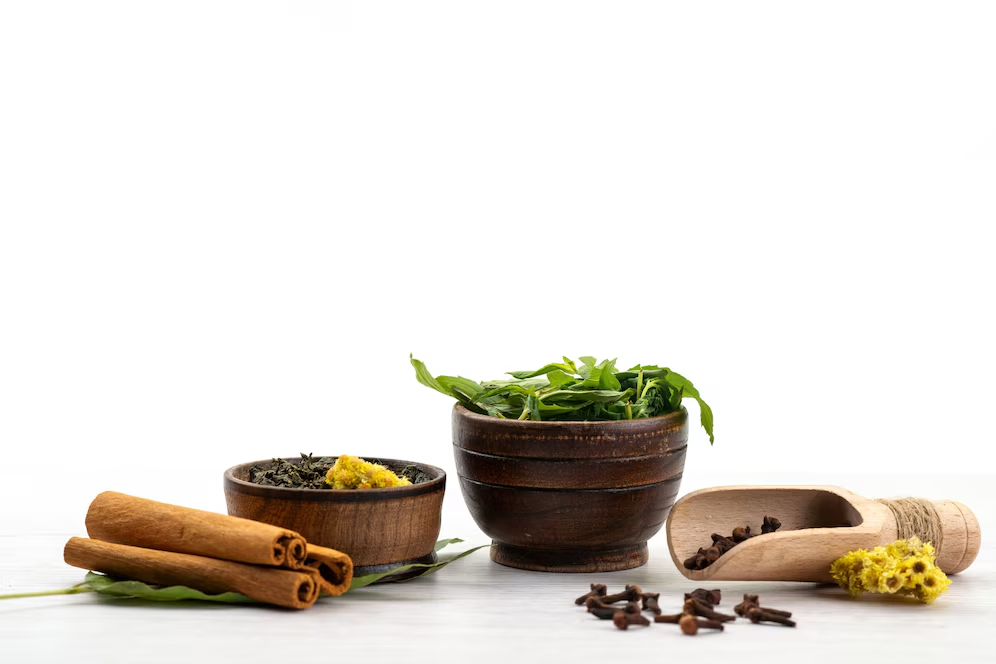
In simple words, herbal medicine deals with the curing of people with the help of plants. It attempts to treat the underlying issues rather than just symptoms and provides a more informed approach to the treatment process. Using herbal medicine does not only relieve suffering but will also enhance the wellness of the individual provided that the person knows as well the ideas and processes involved in the said alternative health care through herbs.
What are the basic principles of herbal medicine?
The basic principles of herbal medicine focus on using plant-based remedies to restore balance and health. It emphasizes treating the root cause of illness rather than just symptoms. Herbal medicine takes a holistic approach, considering an individual’s lifestyle, environment, and constitution to promote long-term well-being.
Herbal medicine operates on the principle that there are active plant parts within the plants that have a physiological effect on the body and can therefore correct any existing dysfunction within the body. It treats not only symptoms but the disease itself – this causal oriented approach goes under the name interstitial therapy. Apart from these, they include treatments also including some external meditation like herbal therapies and special diets to restore this peace of spirit with the body environment.
How are herbs classified in herbal medicine?
Herbs in herbal medicine are classified by their properties, such as adaptogens, tonics, or astringents. Adaptogens help the body adapt to stress, tonics strengthen systems, and astringents tighten tissues. These classifications help practitioners choose the right herbs for individual needs, optimizing treatment effectiveness.
Tonic herbs ‘build up’ stress resistance within the systems, inclusive of the immune system the astragalus herb. Mucilage herbs such as yellow dock help soothe the digestive system whereas astringent herbs such as witch hazel or saw palmetto help tone the tissues. Herbalists study herbal properties and use the herbs appropriately to address particular ailments ensuring that every herb serves its purpose.

What techniques are used to prepare herbal remedies?
Techniques used to prepare herbal remedies include infusions, decoctions, tinctures, and salves. Infusions extract properties by steeping herbs in hot water, while decoctions simmer tougher plant parts like roots. Tinctures use alcohol as a solvent, and salves blend herbs with oils for topical application.
Infusions refer to the process of steeping soft plant materials such as leaves and flowers in hot water, a process that is akin to making tea. Decoctions involve the boiling of hard plant materials such as bark and roots. Tinctures and extracts are also obtained by soaking in solvents, preferably alcohol, the concentration being increased somewhat. Salves are made of herbs mixed with oil or wax for external use only.
How does herbal medicine promote long-term health?
Herbal medicine promotes long-term health by addressing root causes and restoring balance. It supports the body’s natural healing processes with minimal side effects. Through personalized herbal treatments and lifestyle adjustments, herbal medicine fosters overall wellness and helps prevent chronic conditions.
The use of herbal medicine is directed towards correcting the root cause rather than the symptoms of imbalances. Nourishing herbs taken over time function to enhance immunity, digestive system as well as the emotional aspect of an individual. Along with changes in diet and behavior, herbal medicine promotes the maintenance of health and the reduction of risk factors for disease in the long term.
What are the benefits of using herbal medicine over conventional treatments?
Herbal medicine offers a natural, holistic approach with fewer side effects compared to conventional treatments. It treats the root cause of illness and promotes overall well-being. Herbal medicine also focuses on prevention, making it effective for long-term health maintenance and addressing chronic conditions.
However, herbal medicine, as opposed to allopathic medicine, tends to be more symptom-focused, treats the root causes of disease rather than just attacks superficial symptoms. Herbs harmonize and cleanse the body’s system by working with nature. Many prefer herbal treatment since it is more effective and gentler and helps one to prevent disease as opposed to just getting amenities.
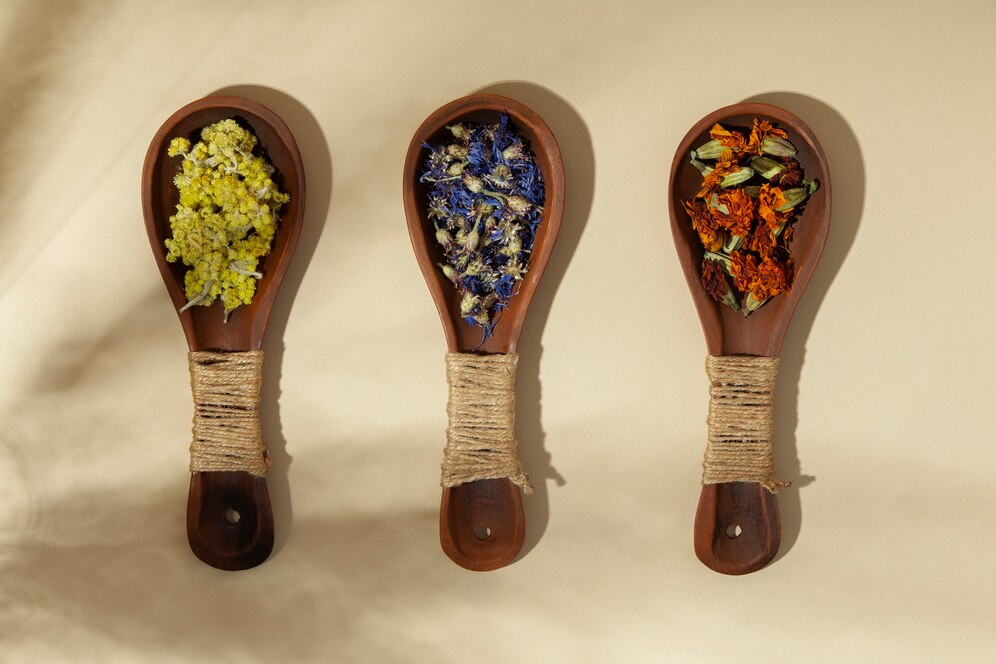
How is herbal medicine personalized for individuals?
Herbal medicine is personalized based on an individual’s unique constitution, health history, and lifestyle. Practitioners assess factors like stress levels, diet, and emotional well-being before recommending specific herbs. This customized approach ensures the treatment aligns with the person’s holistic health needs for optimal results.
Considering that herbalists examine the complete mental and behavioral state of the patient herbalist not only looks out of the standard organs but examines other parameters like energy amounts, depression, digestion, intake and burning of food, getting ready and avoiding stress, etc. For example, one person may require soothing herbs like chamomile to alleviate anxiety; another person may require stress-reliever herbs referred to as adaptogens, such as ashwagandha. This targeted approach makes each treatment the most productive it can be.
What is the role of lifestyle in herbal medicine?
Lifestyle plays a crucial role in herbal medicine, as it complements the effects of herbs. Practitioners often recommend changes in diet, exercise, and stress management alongside herbal treatments. By addressing both lifestyle and herbal remedies, this approach fosters holistic health and long-lasting wellness.
Many herbalists hold the view that lifestyle plays a very important role in treatment since it enhances the effectiveness of the herbs. For instance, one with bowel herbs would also require proper nutrition that minimizes the intake of heavy foods. So, one would like to take herbs to relieve stress, but it works even better if you practice yoga. In this way, both herbs and lifestyle adjustments enhance the quality of health.
Conclusion
An examination of concepts and techniques in herbal medicine quickly reveals that it is something different. Perhaps what makes herbalism unique is its rich supply of herbal and other natural remedies, customized interventions, and lifestyle changes. When people become more oriented towards the appreciation of such principles, everyone will fully utilize herbal medicine.
Herbal Medicine
Herbal medicine is a treatment method that uses plants’ healing properties by concentrating them into different forms in order to heal various diseases or improve general well being. It is among the oldest known systems of care.
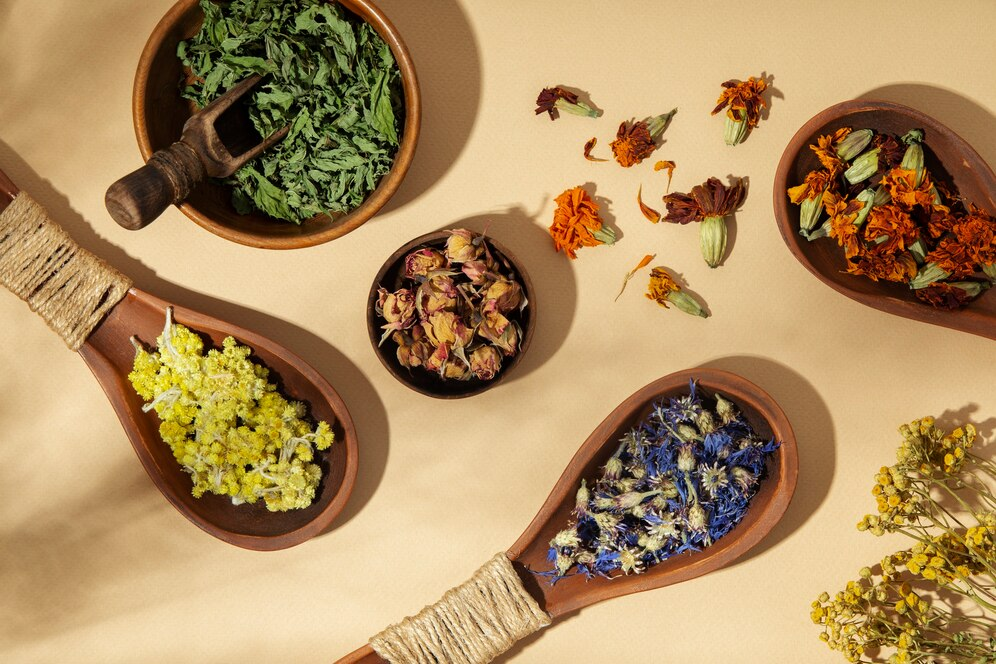
Herbal therapy is something that dates back centuries and as history shows, it is not new to our world. Traditional medicine systems such as Traditional Chinese Medicine and Ayurveda have been using such medicine for countless diseases. All these historical practices have enabled the growth of contemporary forms of holistic medicine. As we unearth the past of herbalism, we begin to see how those comparatively rudimentary methods were employed in wellness practices which unfortunately are not embraced as much or at all in modern society but are very effective in natural healing. So, now it is time to turn to the first topic on the extent of the past herbal medicine.
Where did herbal medicine originate?
Herbal medicine originated in ancient civilizations, including China, India, Egypt, and Greece. Each culture developed unique herbal practices for healing. Chinese and Ayurvedic medicine are among the oldest, emphasizing balance and natural remedies. These traditions laid the foundation for the herbal medicine practices we use today.
In the Indian science of Ayurveda, turmeric and ashwagandha among other herbs have been very useful in restoring bodily energies. In the practices of Traditional Chinese Medicine, ginseng was believed to be a valuable source of energy. There are other practices where the ancient Egyptians used garlic to overcome bacteria while Greek Physician Hippocrates used the willow tree’s bark to treat pain. Such practices along with other natural remedies have been practiced as alternative medicine for centuries and thus reveal how herbs have been utilized as a healing tool in various societies.
How did ancient cultures use herbal medicine?
Ancient cultures used herbal medicine to treat illnesses, boost immunity, and promote well-being. They used plants, roots, and extracts to create remedies for various conditions. Knowledge of herbs was passed down through generations, forming the basis of traditional healing systems like Ayurveda and Chinese medicine.
While teas, poultices and oils were prepared as part of the remedies for diseases, Inflections of abroad, regulating food intake and feverish states were the main provisions of ailments. In Ayurveda, herbs like turmeric and neem were used to have balance in the body and in Chinese medicine, ginseng and ginger were for energy. The use of these herbs was part of their health care systems and was transmitted by way of mouth or in written form so that generations to come can have the necessary information regarding the curative properties of certain plants.
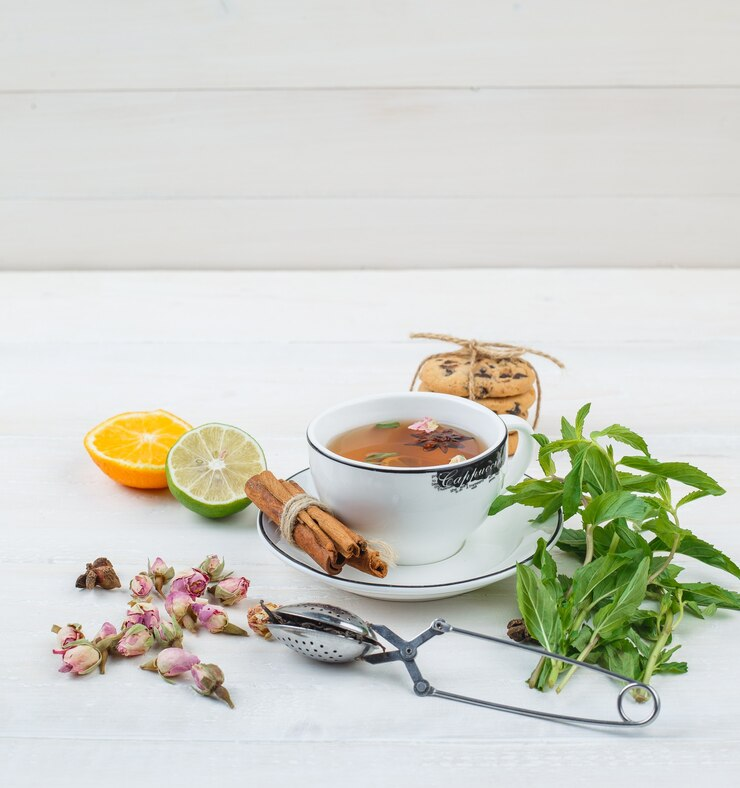
What is the role of herbs in traditional Chinese medicine?
In traditional Chinese medicine (TCM), herbs play a crucial role in restoring balance and harmony in the body. TCM uses a variety of herbs to target specific organs and energy pathways. Herbal formulas are tailored to the individual’s needs, promoting healing and maintaining overall health.
Traditional Chinese Medicine also groups herbs according to their uses-for instance we have tonics, astringents and blood movers. For instance, Ginseng is known for its strengthening effects on the body’s Qi and enhancing the person’s endurance while Astragalus is used to enhance immunity. In TCM, herbs may be combined differently daily, or even within the day depending on the specific needs of a patient. This leads to them cherishing all needed prescription space in balance and health at all times.
How did herbal medicine influence Western medicine?
Herbal medicine significantly influenced Western medicine by providing the foundation for many modern drugs. Ancient Greek and Roman physicians documented herbal remedies in texts, shaping early medical practices. Herbs like willow bark inspired the development of aspirin, highlighting the lasting impact of traditional herbal knowledge on Western pharmacology.
The use of herbs was very common among Greek physicians such as Hippocrates, which was later adopted by the Roman medicine practitioners. The herb book “Materia Medica” written by Dioscorides contained thousands of plant names, predominantly used in any kind of European herbalism. In the present world, for instance, drugs such as digitalis used for the treatment of heart disease were derived from herb medicines. This shows the importance of traditional herbal medicine even in this modern age.
What herbs were commonly used in ancient Egypt?
In ancient Egypt, herbs like garlic, aloe vera, and frankincense were commonly used for medicinal purposes. Egyptians valued these herbs for their healing properties, using them to treat ailments, preserve health, and for rituals. Their extensive knowledge contributed significantly to the foundation of herbal medicine.
Garlic was given to the patients in such conditions and infections, and also to enhance the bodies’ immunity. Soothe Aloe Vera is well-known for its restorative properties and is used to treat various skin and wound ailments. Not only for the medical values of frankincense, but also for the ritual aspects, it was used. There were these clearly indicated uses in Egyptian papyruses,for instance in the Ebers Papyrus.

How is herbal medicine connected to Ayurveda?
Herbal medicine is integral to Ayurveda, an ancient Indian healing system that uses herbs to balance the body’s energies. Ayurveda categorizes herbs based on their effects on the body’s doshas. Herbal treatments are personalized, aiming to restore harmony and promote holistic health through natural remedies.
In Ayurveda, herbs such as turmeric, neem, and tulsi are used to correct the imbalances in vata, pitta, and kapha. For example, ashwagandha is believed to help in building up the nervous system and reduce stress. This is the case with Ayurveda’s more overgrown practice complexity as herbal medicine, containing “Charaka Samhita” which explains herb classifications.
How did herbal medicine evolve over time?
Herbal medicine evolved from traditional healing practices to modern integrative medicine. Early cultures used herbs based on observation and experience. Over centuries, herbal knowledge expanded with scientific research, leading to the development of herbal supplements and integration into holistic health practices.
In the start, supplementary medicine depended on trial and error with knowledge being oral. When writing was created herbal books came out in almost every culture. The Renaissance and the scientific revolution came out with a more thorough method which was to study the constituents of the plants. Nowadays, herbalism is a fusion between ancient practices and twenty-first century medicines bringing a wider spectrum of treatment possibilities.
Conclusion
Looking at the past of herbal medicine provides evidence of a meaningful relationship between nature and the treatment of diseases in various cultures. From Ayurveda and a TCM to pharaonic and Greek herbal therapies, phyto-medicine has remarkably contributed to the making of health and wellness. This is so because these practices are still quite useful in the present time, however, they are worthy to be understood not only because of their practical utility or usability in contemporary society but also give an idea of other healing alternatives prevailing within today’s medicine.
Herbal Medicine
Herbal medicine is a treatment method that uses plants’ healing properties by concentrating them into different forms in order to heal various diseases or improve general well being. It is among the oldest known systems of care.
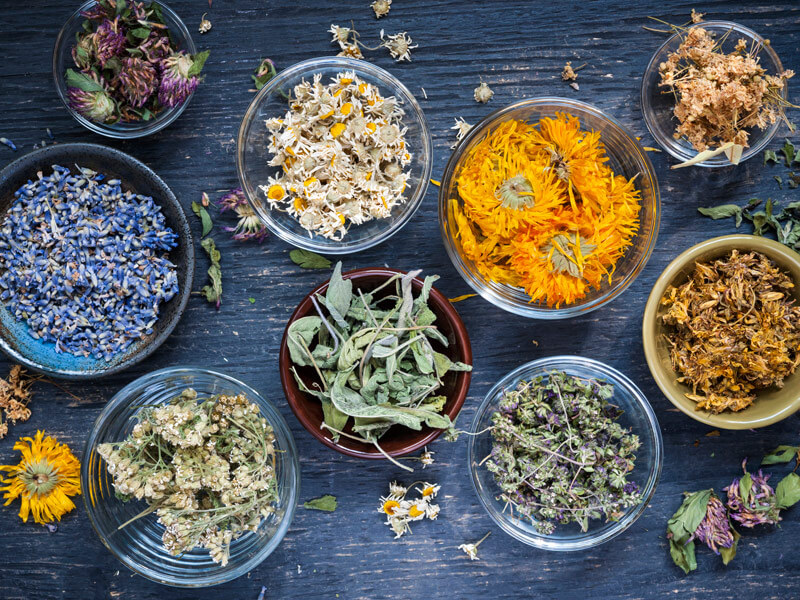
Among all herbs in herbal medicine and culinary traditions, one stands out as “King of All Herbs”. This special position belongs to none other than Ginseng. In various cultures, notably Asia, ginseng has been highly esteemed for ages by herbalists, chefs, and health enthusiasts due to its amazing qualities and versatility.
What is The Origin and Species of Ginseng?
Ginseng originates from Asia and North America. Key species include Panax ginseng (Asian ginseng) and Panax quinquefolius (American ginseng), known for their medicinal properties.
Ginseng is a perennial plant that belongs to the family Araliaceae, genus Panax. It got its name from Chinese words meaning man root because its roots are shaped like humans. Some types of ginseng have their own unique features that are exclusive to them:
American Ginseng can be found in North American deciduous forests where it has been used by Native Americans for many generations. It is recognized because it cools and soothes the nerves.
Asian Ginseng originates from mountainous regions in Eastern Asia. Its stimulating effect is more pronounced than the effect experienced with its American counterpart.
Why Is It The Powerhouse of Bioactive Compounds?
Ginseng is a powerhouse of bioactive compounds due to its rich content of ginsenosides, which contribute to its diverse health benefits, including energy, immunity, and cognitive support.
What makes ginseng “the King of Herbs” are its incredible bioactive compounds. The main ones include the ginsenosides that are exclusive to the Panax genus and these account for many health benefits on ginseng.
Ginsenosides are the main active constituents in Ginseng. They have antioxidant, anti-inflammatory, and neuroprotective effects.
Polysaccharides are complex sugar molecules that make a significant contribution to ginseng’s immune-boosting properties.
Peptides molecules found in Ginseng may help lower blood sugar levels. Polyacetylenes have reported antitumor activities for these compounds.
What Are The Multifaceted Benefits of Ginseng?
Ginseng offers multifaceted benefits, including boosting energy, enhancing cognitive function, supporting immune health, reducing stress, improving mood, and promoting overall vitality and well-being.
A wide array of possible health advantages makes it rightful for ginseng to be called “the King of Herbs.”
One of the most popular applications of this herb is as an energy booster. It is used as a natural alternative to caffeine.
Ginseng enhances memory, focus, mental clarity among other aspects of cognitive function. It is preferred by many students and workers who seek improved performance.
As an adaptogen, ginseng helps the body deal with stressors, whether caused physically, chemically, or biologically. Therefore, it can be used as a remedy against stress management, leading to good general health.
Some research indicates that through improved blood circulation and reduced blood pressure, ginseng may benefit heart health. While more investigations are required, some studies have shown to check tumor growth while boosting chemotherapy.
Is Ginseng Used in Traditional Therapy Systems?
Yes, ginseng is widely used in traditional therapy systems like Traditional Chinese Medicine and Korean Medicine for its tonic, adaptogenic, and therapeutic properties.
Ginseng worship has a life beyond this, as well as its scientifically established merits. In traditional therapy systems, especially TCM (Traditional Chinese Medicine) and Korean medicine, ginseng is separate:
In TCM, ginseng is considered a “tonic” herb that nourishes the “five viscera” of the body – heart, liver, spleen, lungs, and kidneys. It is recognized as a replenisher of “qi,” promoting longevity.
The most common name for ginseng in Korea is insam which is deeply rooted in Korean culture and traditional medicine. This plant cures many diseases and people often use it as daily tonic for health maintenance.
Which is the most potent herb on earth?
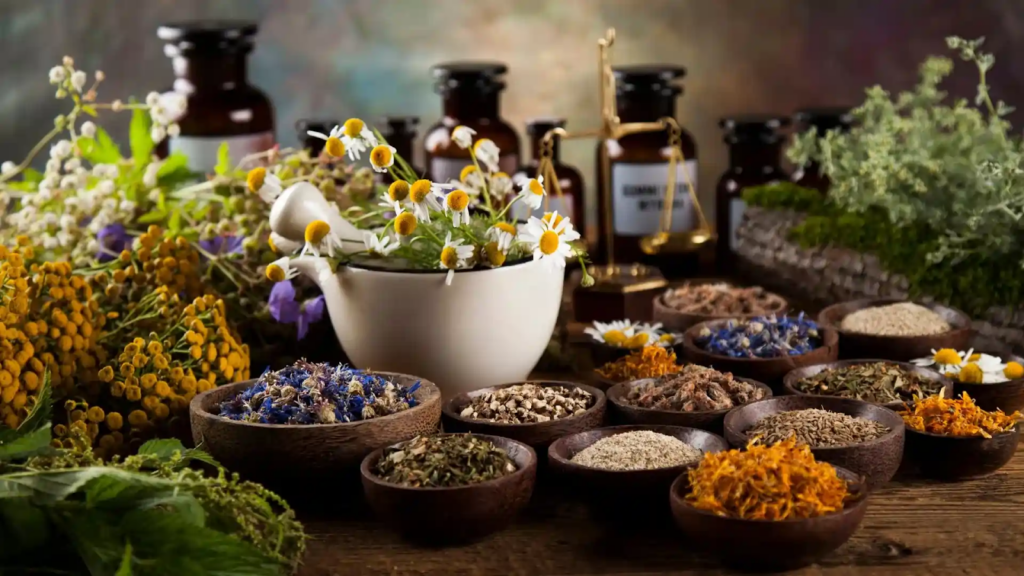
There isn’t a single “most potent” herb, but turmeric, with its active compound curcumin, is highly regarded for its powerful anti-inflammatory and antioxidant properties.
Due to curcumin its active element which has both anti-inflammatory and antioxidant properties turmeric is one of the powerful herbs. It also supports immunity, brain health and it is currently being studied because of its potentials in fighting cancer and Alzheimer’s.
What is Golden Herb?
Golden herb often refers to turmeric, known for its vibrant yellow color and potent active compound, curcumin, which offers significant anti-inflammatory benefits.
Turmeric is also known as golden herb because it is bright yellow with many health benefits. For centuries, traditional medicine has used turmeric due to its anti-inflammatory, antioxidant, and antimicrobial properties. Thus making it a versatile and significant herbal remedy.
What are the 3 sacred herbs?
Three sacred herbs are sage, used for purification; frankincense, for spiritual rituals; and myrrh, for healing and protection, each valued in various spiritual traditions.
Basil, Sage, and Cedar are considered sacred across many cultures. In Indian folklore, Basil holds a revered position. Native Americans smudge sage for purity rituals while cedar is important for protection against bad forces or for purification purposes during indigenous ceremonies.
What herb can heal your body?
Turmeric is renowned for its healing properties, thanks to curcumin, which helps reduce inflammation, support immune function and promote overall body health.
Aloe Vera stands out for healing purposes. It contains anti-inflammatory properties that make it widely used for burns, wounds, or any skin infection. Aloe vera also enhances digestion functions and hence can soothe various gastrointestinal disorders.
What were the three herbs for Jesus?
The three herbs associated with Jesus are myrrh, frankincense, and hyssop. Myrrh and frankincense were used in gifts, while hyssop was used for purification.
The three wise men brought presents of Gold, Frankincense and Myrrh to Jesus Christ according to Christian tradition. Although they are not all herbs, frankincense, and myrrh are aromatic resins used for their medicinal and ceremonial purposes; one symbolizes divinity, while the other signifies healing.
What are the nine healing herbs?
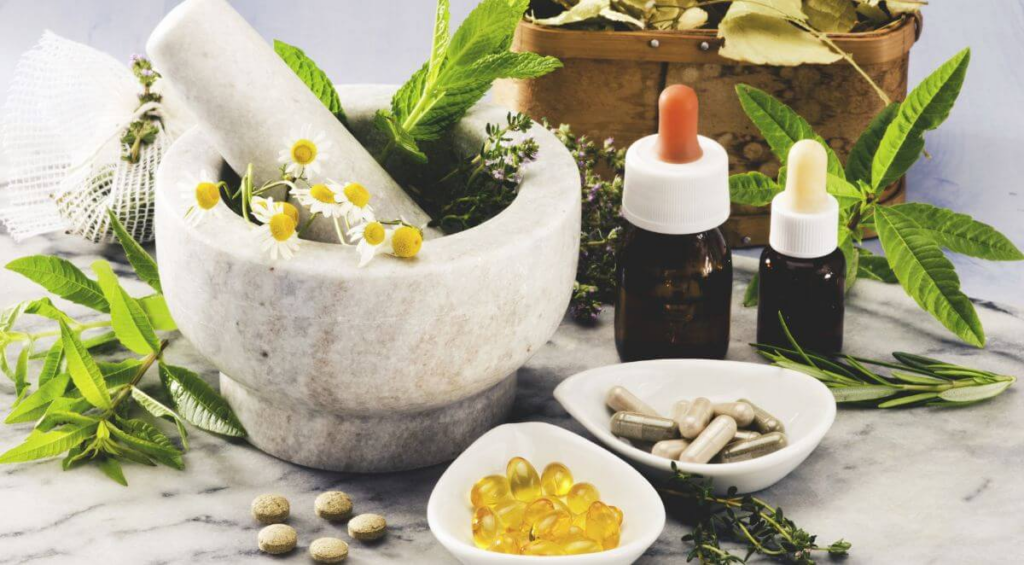
Nine healing herbs include turmeric, ginger, garlic, echinacea, aloe vera, peppermint, lavender, chamomile, and ginseng, each known for medicinal properties.
According to Anglo-Saxon folklore, the Nine Herbs Charm includes Mugwort, Plantain, Lamb’s Cress, Watercress, Nettle, Bittercress, Chamomile, Crab Apple, and Chervil. These curative shrubs were believed to have magical powers which could be used to cure various ailments.
What is the most powerful spiritual flower?
The lotus flower is considered the most powerful spiritual flower, symbolizing purity, enlightenment, and rebirth in many spiritual traditions, including Buddhism and Hinduism.
In numerous cultures Lotus flower is regarded as a spiritual flower. It represents rebirth, purity and enlightenment. In Hinduism and Buddhism, it is an object of veneration symbolizing spiritual growth and development of the soul.
What herb makes you live longer?
There is no definitive herb for longevity, but ginseng is often associated with increased vitality and potential life extension due to its adaptogenic and health-supportive properties.
Ginseng has gained a reputation for prolonging life. Traditionally it was employed in medicine for energy boosting purposes as well as cognitive improvement and strengthening immunity system. Ginseng supports resistance to stress stemming from its adaptogenic properties that leads to general body wellness.
Conclusion
Ginseng has earned its title “the king of all herbs” because of its rich history in treating many illnesses across different cultures. Its popularity among scientists around the globe stems from its energy-boosting abilities. As we continue to unravel its mysteries ginseng will remain an influential herb in generations ahead in the herbal world.
References
Herbal Medicine
Herbal medicine is a treatment method that uses plants’ healing properties by concentrating them into different forms in order to heal various diseases or improve general well being. It is among the oldest known systems of care.
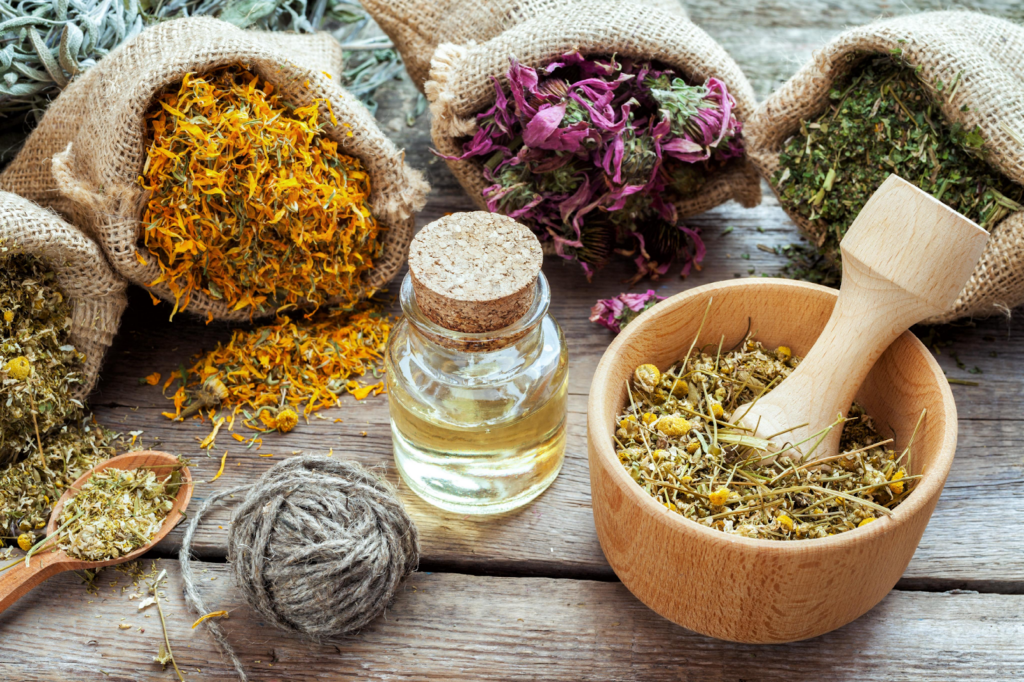
Herbal supplements are popularly used as natural health boosters but their safety is not always guaranteed. One needs to know the risks they pose and how they interact. This guide will look into common misconceptions about herbs and why it is important to use them consciously in order to avoid any negative effects. Now let’s get into what you should know before combining herbs.
What are common herbal interactions with medications?
Herbal interactions with medications can include altered drug efficacy or increased side effects. For example, St. John’s Wort can reduce the effectiveness of birth control pills, while ginkgo biloba may increase bleeding risk with anticoagulants. Always consult a healthcare professional before mixing herbs with prescription drugs.
There are also common interactions with herbs like garlic and ginger, which increase bleeding risk when taken with blood thinners. Other herbs, such as valerian root, can enhance the sedative effects of medications used for anxiety or insomnia and may cause excessive drowsiness.
Such interactions underline the fact that mixing herbs with medications is a serious matter that needs professional consultation, more so for those taking multiple medications or having predisposed conditions.
How do herbal supplements interact with over-the-counter drugs?
Herbal supplements can interact with over-the-counter drugs by either enhancing or diminishing their effects. For instance, echinacea may affect the metabolism of certain cold medications, while ginseng could increase the risk of bleeding with aspirin. It’s crucial to seek advice from a healthcare provider before combining them.
Other common interactions include St. John’s Wort decreasing the effect of allergy medications, whereas licorice root interferes with the function of diuretics. Such interactions may lead to side effects that may appear all of a sudden or lower the therapeutic outcome of the over-the-counter medications.
Understanding probable interactions and guidance from experts would safeguard one in using both herbal supplements and over-the-counter drugs safely as well as effectively.
Can mixing herbs lead to adverse effects?
Yes, mixing herbs can lead to adverse effects such as toxicity, allergic reactions, or interference with other treatments. For instance, combining kava with other sedatives can cause excessive drowsiness. Understanding each herb’s properties and consulting with a healthcare provider can help prevent these negative outcomes.
Furthermore, the activity of some herb combinations could be enhanced, thus creating health problems such as high blood pressure or digestive disturbances. Other herbs, like comfrey, can also result in liver damage overdose, poisoning, or when combined with other hepatotoxic substances. The possible side effects call for awareness of the use of herbal remedies, much more in their combination.
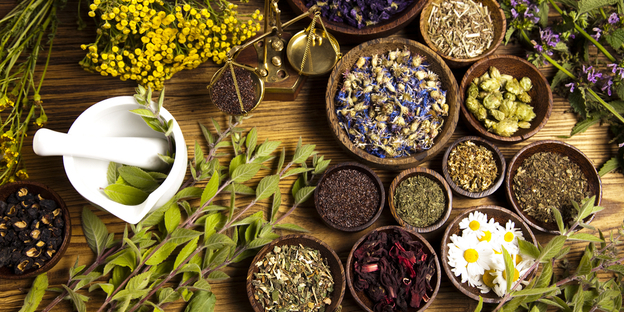
What herbs should not be mixed with antidepressants?
Herbs like St. John’s Wort and ginseng should not be mixed with antidepressants as they can cause serotonin syndrome or reduce drug effectiveness. These interactions can lead to serious side effects, emphasizing the need to consult with a healthcare professional before combining any herbal supplements with antidepressant medications.
St. John’s Wort is especially known to interact with selective serotonin reuptake inhibitors, leading to increased levels of serotonin, hence, it is dangerous. Other herbs, such as kava, increase the sedating side effects of some antidepressants, resulting in excessive sedation. People taking antidepressants should always consult healthcare providers before using herbal supplements because of these potentially dangerous interactions.
How do herbal teas interact with medications?
Herbal teas can interact with medications by altering absorption rates or enhancing side effects. For example, licorice tea may increase blood pressure, affecting antihypertensive drugs, while chamomile can enhance the effects of sedatives. It’s advisable to consult a healthcare provider when consuming herbal teas alongside medications.
Other examples of interactions include peppermint tea absorption and the effects of green tea on anticoagulant drugs. Interactions diminish the effect or enhance the toxicity of the administered medication. Therefore, there is a need to be aware of herbal tea–medicine interactions. Any person on medication needs to consult a professional before taking herbal tea as part of a daily routine.
What are the risks of combining herbal supplements with alcohol?
Combining herbal supplements with alcohol can amplify sedative effects, leading to increased drowsiness or impaired judgment. Herbs like valerian and kava are particularly risky when mixed with alcohol, as they can enhance liver toxicity and depressant effects. Always seek medical advice before combining alcohol with herbal supplements.
Such interaction can also provoke increased pulse rate, dizziness, or nausea, hence maximizing the effects of alcohol intake. In some cases, the co-ingestion of herbal supplements and alcohol enhances the risk of liver damage or aggravates pre-existing liver conditions. Having such knowledge of risks and seeking professional advice on safe usage can ensure safe co-ingestion of herbal supplements and alcohol.
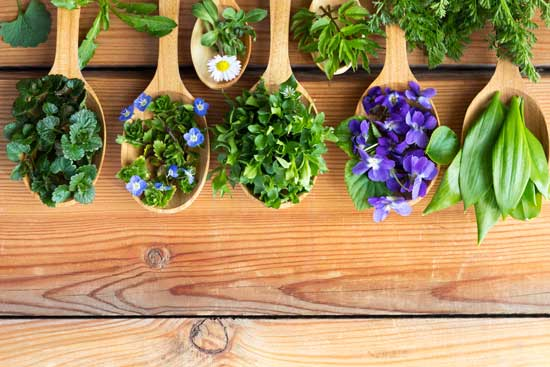
How do herbal interactions affect heart medications?
Herbal interactions with heart medications can lead to altered heart rates or blood pressure levels. For instance, garlic supplements can increase the effects of blood thinners, while hawthorn might enhance heart medications’ actions, risking adverse cardiovascular events. Consulting a healthcare provider is essential before combining these treatments.
Other herbs, such as ginseng, interact with medications that treat high blood pressure and can cause hypertensive episodes. This is extremely harmful to patients who already have cardiovascular diseases because the medication can exacerbate the condition or lead to various complications.
Accordingly, patients are advised to disclose the use of herbal supplements to doctors and other healthcare professionals to prevent potential interactions with heart medications.
Are there specific herbs to avoid during pregnancy?
Certain herbs should be avoided during pregnancy due to potential risks to the fetus, such as uterine stimulation or hormonal effects. Herbs like black cohosh, dong quai, and pennyroyal can pose dangers during pregnancy. Pregnant individuals should always consult with a healthcare professional before using any herbal supplements.
On the other hand, other herbs on the list include goldenseal, where the latter can be detrimental to fetal development; aloe vera may further cause uterine contractions. The above risk factors also suggest that pregnant women will need to consult with healthcare providers at all times before deciding to take herbal medications for their own safety and in the womb.
Conclusion
To sum up, herbal supplements such as Holy Basil have a wide range of advantages for personal health but still need caution when dealing with them. Understanding potential interactions and risks ensures safe usage. Prior consultations from doctors are crucial before embarking on any herbal regimen so that individual needs will be met thus assuring safety too.
References
Herbal Medicine
Herbal medicine is a treatment method that uses plants’ healing properties by concentrating them into different forms in order to heal various diseases or improve general well being. It is among the oldest known systems of care.
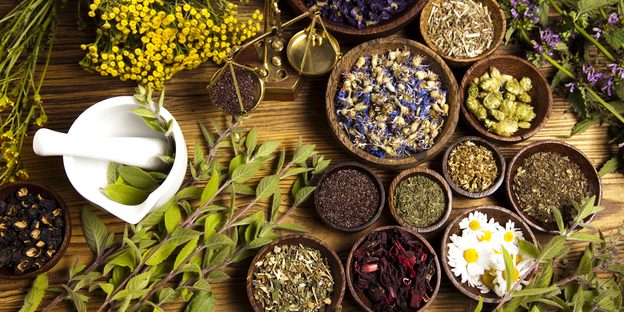
Have you ever wondered how people cared for their health before modern medicine? Herbal medicine has been there throughout history and has provided us with some of the oldest forms of healing. These natural remedies are not just fairy tales; they form part of holistic health practices around the globe. Let’s take a look into what herbal medicine is all about and how these plants can support your health.
How does the herbal medicine method work?
The herbal medicine method works by using plant-based remedies to prevent and treat illnesses, focusing on natural healing processes. It involves using herbs to restore balance and enhance the body’s ability to heal itself.
Herbal medicine makes use of plants’ extracts, roots, leaves, flowers in helping health issues, focusing on the natural healing. Practitioners select herbs based on their active compounds and their therapeutic effects, such as anti-inflammatory, antimicrobial, or soothing properties.
The technique supports the body’s self-healing potential to rebalance by dealing with the cause of the issue, not just the symptoms. Herbal medicine enhances bodily functions toward health and wellness through the synergistic action of different compounds found in plants to achieve optimal wellness.
What are common techniques used in herbal medicine?
The common techniques used in herbal medicine include herbs decoction, infusion, tincture, and poultice, each tailored to extract specific plant compounds for therapeutic use. These methods aim to maximize the medicinal benefits of herbs.
These techniques in herbal medicine are used according to the desired effects and parts of the plant. The decoctions cook tougher plant parts, usually roots, to extract active compounds; the infusions steep leaves or flowers in hot water. Tinctures preserve the potency of herbs in an alcohol-based extract; poultices entail applying mashed herbs directly to the skin for localized healing, and so forth.
Still, with each technique, there is some kind of malady targeted to optimize the delivery of active ingredients. These methods ensure that the therapeutic properties of herbs are effectively harnessed to provide natural remedies to almost all human health issues.
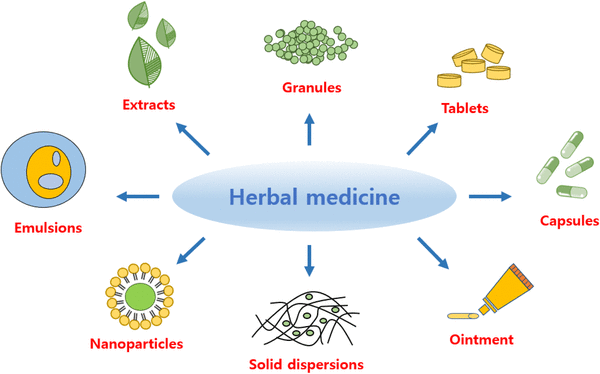
How is herbal medicine different from conventional medicine?
Herbal medicine differs from conventional medicine by using natural plant remedies, focusing on holistic healing and prevention. It emphasizes treating root causes rather than symptoms, contrasting with pharmaceuticals’ focus on symptom relief.
It is focused on the holistic approach of restoring balance and supporting the natural defenses of the body. In herbal medicine, whole plants or extracts are used in synergistic balance for compounds to effectively work in healing. Conventional medicine mostly relies on synthesized drugs that target specific symptoms or diseases.
Though conventional treatments might at times give quick relief, herbal medicine confers long-lasting wellness through natural prevention and balance. This approach motivates the understanding of body interrelations of systems, hence giving a wider dimension to health that incorporates lifestyle, environment, and nutrition.
What are the benefits of using herbal medicine?
The benefits of herbal medicine include promoting holistic health, reducing side effects, and offering natural alternatives for prevention and treatment. It supports the body’s natural healing processes and can be used alongside conventional therapies.
It is absolutely a natural approach to health, with the emphasis laid on prevention and balance. Side effects are few because plant compounds are used in their natural form and hence tend to have milder effects on the body. Herbs complement conventional treatments by providing overall wellness and getting to the roots of the illness.
Hence, it may be tailored to individual needs, allowing for personal care and hence long-term health. The emphasis of herbal medicine on natural ingredients gives people control over their health through viable and holistic solutions that keep pace with the body’s self-healing abilities.
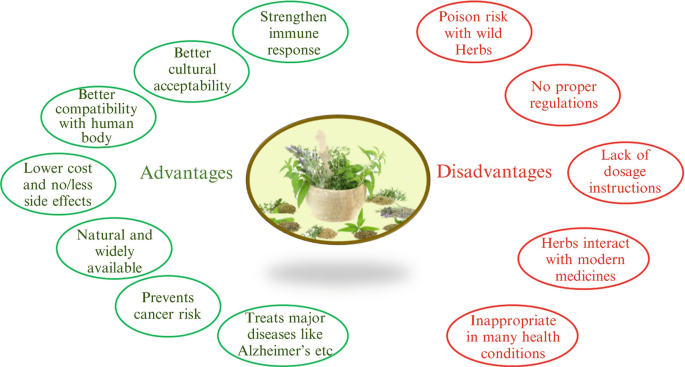
Are there risks associated with herbal medicine?
Risks associated with herbal medicine include potential side effects, interactions with medications, and variability in potency. Proper consultation with a qualified practitioner is essential to ensure safe and effective use.
Even though herbal medicine is relatively safe, its improper use may result in side effects or drug interactions. Some herbs are known to cause allergies and really worsen health conditions. Preparations of herbs have varying potencies based on the way they are prepared and by the quality of plants.
Consulting a qualified herbalist or a health care professional will ensure proper dosage and can be combined with other treatments. Awareness and education regarding the potential risk factors are very highly in maximizing the benefits of herbal medicine while minimizing harm. Proper guidance makes the treatment of herb medication individualized to bring forth safe and effective healing practices.
How are herbs prepared for medicinal use?
Herbs are prepared for medicinal use through techniques like drying, extracting, and blending, ensuring their active compounds are preserved and effective. These preparations can be consumed as teas, capsules, tinctures, or topical applications.
Herb preparations include methods of preserving the herb’s medicinal properties. This incribes the drying of herbs, inhibiting spoilage while preserving active compounds. Extraction concentrates these compounds for potent remedies through tinctures and essential oils. Herbal blending gives room for synergistic effects, which help to improve their therapeutic effect.
The prepared herbs may be given in the form of teas, capsules, or topical treatments depending on the patient’s health problems. Proper preparation ensures that those are beneficial properties for access and effectiveness in therapeutic use, therefore allowing a natural alternative to conventional medications.
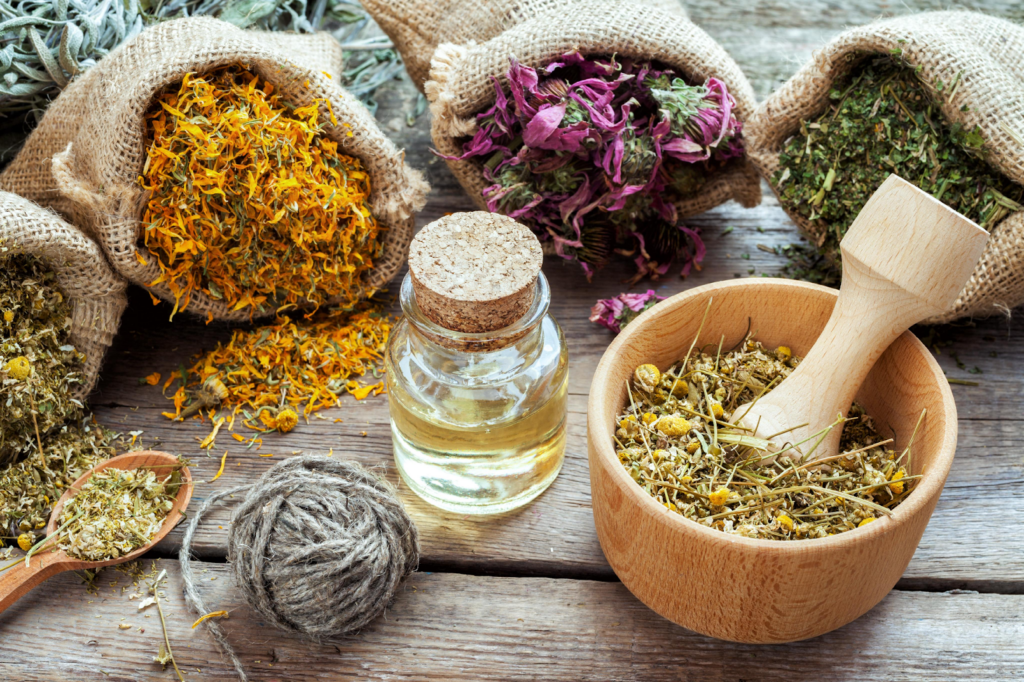
What is the historical significance of herbal medicine?
Herbal medicine has a rich historical significance, used for centuries across cultures for healing and wellness. It forms the basis of many traditional medicine systems and continues to influence modern holistic health practices.
Herbal medicine has played an integral role in human health for thousands of years, representing the foundation for these traditional systems of Ayurveda and Traditional Chinese Medicine. Ancient texts and archaeological remains show that herbs were greatly used during ancient times as a means of healing.
The use is deeply related to cultural and spiritual expressions wherein herbal remedies would often be the primary mode of health care, passing down generations. At present, herbal medicine can also influence modern practices by inspiring the development of pharmaceuticals and fostering a holistic view of health. Its historical roots underline its lasting relevance to natural remedies in terms of well-being and addressing health challenges.
Are you ready to tap into the healing power of nature?
Start exploring today’s vibrant world of herbs and see how they can improve your health. Remember that an informed approach together with consultation with healthcare providers will make sure that one’s journey through this form of treatment is safe and beneficial. Let curiosity about life guide us towards better health as we probe into its mysteries.
Herbal Medicine
Herbal medicine is a treatment method that uses plants’ healing properties by concentrating them into different forms in order to heal various diseases or improve general well being. It is among the oldest known systems of care.
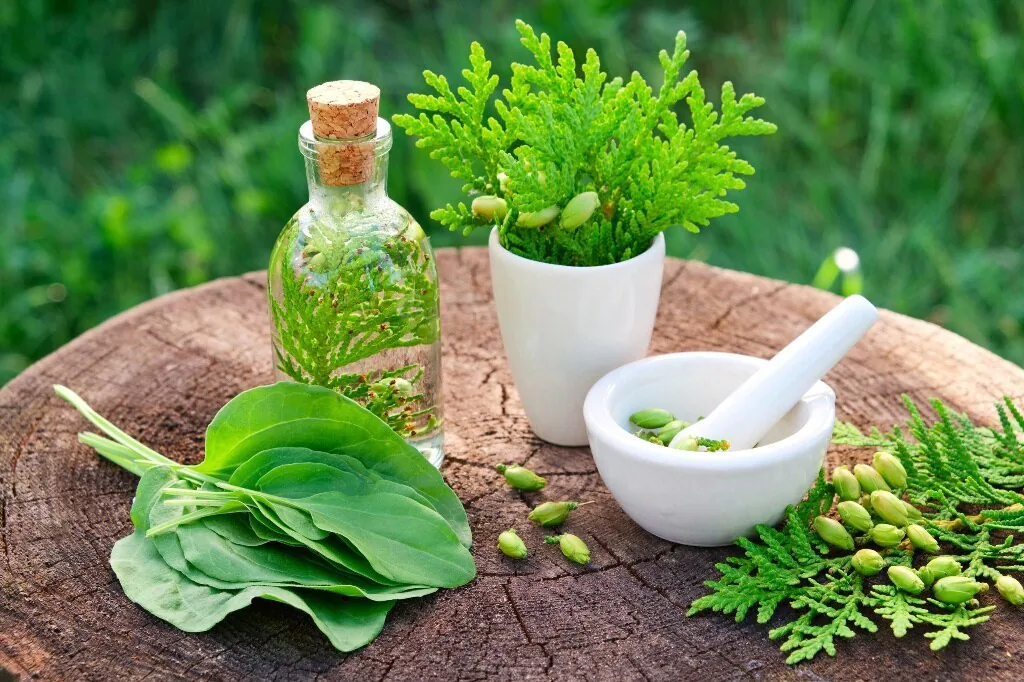
The utilization of seeds, berries, roots, leaves, bark, or flowers of plants for medicinal purposes is called herbal medicine, also known as botanical medicine or phytomedicine. The use of herbs to promote health and cure diseases is a practice that dates back to the beginning of humankind. It has been with us through ages across all cultures and continents.
Understanding Herbal Medicine: An In-Depth Overview
Herbal medicine can be described as a system of prevention and treatment using plant remedies which by reason of their history are acknowledged to be effective. Traditional herbal medicine has always been based on traditional knowledge as well as modern phytotherapy research.
Herbal medicine comprises internal, external, and oral administration of vegetable substances. Seeking to cure people as well as enhance their state of health, herbal medicine believes in the unity of body and mind and in curing the illness not only in terms of its indicators or symptoms.
The Historical Roots of Herbal Medicine
Herbal medicine did not just come out of the blue and has its background with the origin of botanical medicine in ancient civilizations like China, India, and Egypt. Some Ancient forms like Ayurvedic form and Traditional Chinese medicine have made use of herbs for millennia.
Such earlier ways contributed to the overall evolution of herbalism as a broader practice with active knowledge of the exploitation of plants. Such is not the case now as herbal medicine does not only involve ancient practices but the influence of science in herbal medicine has progressed.
Fundamental Concepts and Techniques of Herbal Medicine
The principle of herbal medicine is the use of extracts from plants for body restoration. Techniques include infusions, decoctions, tinctures, and salves, making use of various plant parts such as leaves, stems, roots, and flowers.
Herbalists tend to the overall action of the plant’s constituents and hence often use combinations of herbs. Such a method is often referred to as a constitutional approach wherein the health of each individual is optimized by taking into consideration the idiosyncrasies of the particular person.
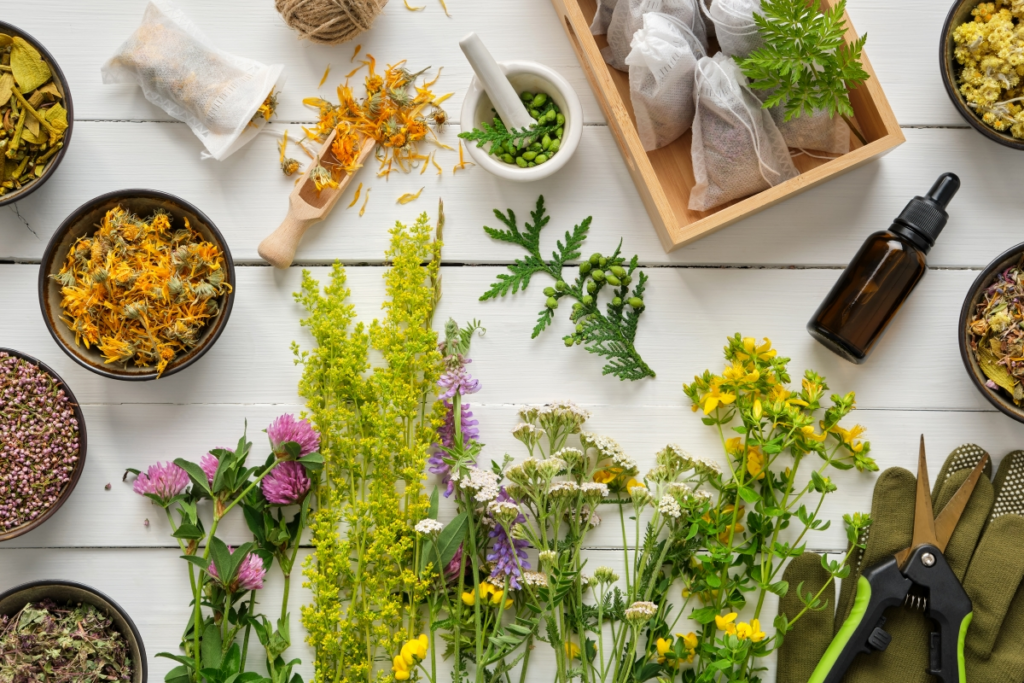
The Potential of Herbal Medicine in Treatment
As any practitioner of herbal medicine can tell you, there is a myriad of conditions that herbal medicine addresses, some of these include enhancing the immune system function, alleviating inflammation, and improving psychological health. There are also herbs like antiperspirants which have been researched to have efficacy.
These herbal medications are safer than using chemical components. Herbal medication serves as a preventive measure, treatment of infection, and disease control and also as a maintenance therapy for good health.
Who Can Benefit from Herbal Medicine?
Herbal medicine has its application to a variety of people, including those who are seeking relief from chronic ailments or others desiring to avert them. It is especially effective for stress management, boosting immunity, and treating stomach problems.
Oftentimes, women during pregnancy, children, and the aged can manage themselves with the help of herbal products, although under supervision. Since it deals with both physical health and psychological issues, herbal medicine can be used to solve different health problems.
Scientific Insights: What’s the Research Evidence in Support of Herbal Medicine?
The medical history list is positively contributed by competitive herbal products supported measuring many researches proving the usefulness of such treatments. Current studies suggest that some herbal substances work: Echinacea stimulates immune function and turmeric is an anti-inflammatory herb.
Clinical studies and reviews of clinical evidence have also been able to support the effectiveness of herbs in the management of some disorders such as anxiety, chronic pain, and hypertension. However, there is limited research on some herbs, but the increasing evidence supports the practice of herbalism in the complementary practice.
Disproving Some Common Stereotypes and Misunderstandings About Herbalism
Herbal medicine advocates often state an uninformed idea that there are no side effects when taking herbs. Actually, herbs are safer but misuse of them as well as incorrect combinations with other drugs can indeed trigger adverse effects. Herbal medicine has no scientific basis; this is another widespread belief.
But in fact, a lot of evidence supports the use of herbs. Such thinking results in believing that it is a magic prescription even for impossible health concerns, which is false. Rather this is an antidepressant that needs to be taken in conjunction with other factors. These aspects help in appreciating herbal medicine.
Choosing a Professional Practitioner: Seeking a Trained Expert in Herbalism
This entails, among other things, confirming herbal qualification certificates claimed by herbal medicine practitioners or those obtained from professional herbal medicine schools. Search for Vinay Shankar and others, including folk practitioners who practice herbalism, nurture her, Oriental medicine, and so forth.
It is important to find someone who has experience in helping with the particular health issues which concern you. A competent herbalist will do extensive history-taking and thorough examinations to come up with an individualized herbal formulation while paying attention to safety issues like the health status and drugs of the person.
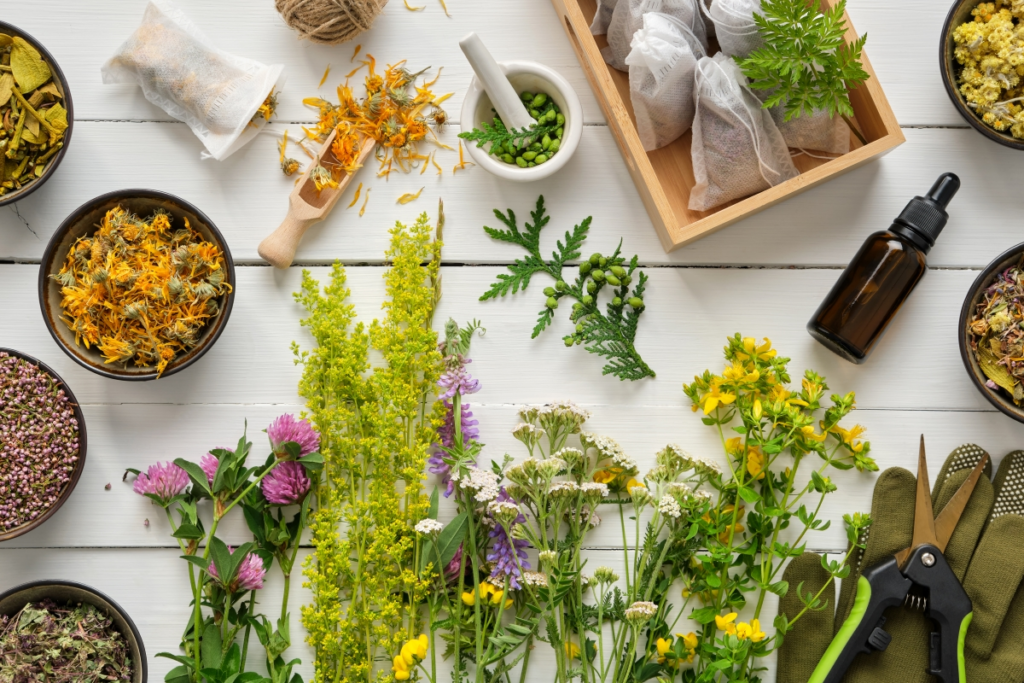
Integrating Herbal Medicine with Conventional and Complementary Therapies
Herbal medicine may be used alongside conventional treatments if it is applied prudently. For instance, there exists a blend of conventional and complementary therapies such as acupuncture, physical, or even therapy that will result in holistic healing. This, therefore, can treat not only the symptoms but also the root causes of any form of illness.
It is crucial to follow healthcare professionals who can ascertain that herbs do not interfere with prescribed medications. In most uses, herbal medicine boosts their immune functions, reduces inflammation, and provides mental well-being as supplements for other therapies in providing holistic health.
Maximizing the Healing Potential of Herbal Medicine: Expert Tips
- High-Quality Herbs: Source herbs from reputable suppliers.
- Unique Properties: Get familiar with the specific benefits each herb brings.
- Right dosages: Learn about the right dosages of the herbs for safety.
- Preparation Method: Prepare the herbs the right way by either teas, tinctures, or capsules.
- Healthy Diet: Maintain a balanced diet to ensure adequate health.
- Hydration: Ensure ample water supply for the body’s natural healing processes to occur as required.
- Managing Stress: Engage your mind in a stress management activity like meditation.
- Seek Professionals: One should consult an experienced herbalist or naturopath in order to get proper consultation to administer herbs in a complementary way.
Risks: Potential Side Effects and Precautions of Herbal Medicine
Herbal medicine is generally non-toxic. However, it does comprise a profile of risks or conditions that may provoke an allergic reaction, contribute to drug interactions, or exacerbate an underlying medical condition. In addition, one needs to be aware of side effects which may include possibly gastrointestinal upset, dizziness, or skin irritation.
Then, always follow the prescription dosage and consult your healthcare provider for any herbal regimen, especially if you are pregnant, breastfeeding, or have chronic conditions. That way, you can avoid unwanted complications and use herbs safely.
How to Practice Herbal Medicine at Home?
First and foremost, a nurturing environment at home should be prepared. One can begin with a small herbal garden or pots like lavender, peppermint, or chamomile, all of which are healing and relaxing.
Set up a calming space to prepare herbal remedies, meditate, and chronicle your health journey. Structure the small herbal apothecary in the most accessible manner with storage for your dried herbs, tinctures, and oils. Don’t forget to take time for self-care and mindfulness, as your home becomes the haven for natural healing.
Personal Growth and Herbal Medicine: How It Can Transform Your Life
Herbal medicine is about not just physical health but also personal growth. Mindful practices, perhaps deepening your connection to nature, will develop greater self-awareness and patience and help you adopt holistic living. Integration of herbs into your daily routine encourages healthier habits and builds a sense of responsibility for well-being.
For this reason, people educate themselves with knowledge about various types of plants and their healing properties, thus empower themselves to nourish their body and mind for a transformative journey toward a more balanced and harmonious life.
The Challenges and Controversies Surrounding Herbal Medicine
Some of the critics found fault in herbal medicine for lacking scientific validation. Critics often point out how the quality in herbs varies and the lack of regulations. Some even question if it is really effective compared to conventional treatments. However, many people feel that traditional knowledge plus growing evidence supports the use of herbal remedies.
A really high degree of rigor in scientific studies and better regulatory practices need to be followed to achieve consistency. Acceptance of both the traditional and modern healing methods would allow one to move past these controversies and come up with a more informed understanding of herbal medicine.
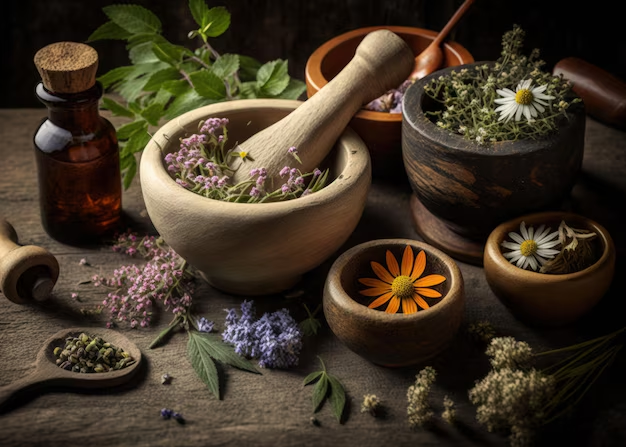
Empowering Yourself: How to Become a Practitioner of Herbal Medicine
Practicing herbal medicine requires dedication and continuing study. Start by studying the basics of botany, herbal pharmacology, and safe herb usage. If available, enroll in accredited courses in herbalism and acquire formal education and certification. Tincture, tea, and ointment your way to lots of practical applications.
Look for experienced herbalists with whom you can seek guidance and mentorship. Gradually, you’ll build knowledge and confidence that comes from being able to offer advice or treatments to others, and from this, you’ll be able to contribute towards holistic healthcare.
Creating a Community: Connecting with Others Who Practice Herbal Medicine
Building a network with like-minded people practicing herbal medicine fosters learning and support. Join local or online herbal groups to share knowledge, experiences, and expertise from others.
Herb market or workshop; retreat: Join to learn more, to mingle with others, and to find inspiration. Networks of this type will expose you to collaboration, support, and updates on new field research. Such a community will inspire your practice and could be the means to making lasting, long-term friendships.
Conclusion:
An ancient but effective means of restoring health which has been supported by many years’ worth of traditions all over the world and backed up by scientific proof day by day growing stronger still; therefore, we can say that plant medications are unique among other forms because they may be used either singly or combined depending on need so far discovered through research even though some caution should always be taken into account before use especially when dealing with holistic approach towards treatment where prevention is better than cure mentality works best for most people in general.
Herbal Medicine
Herbal medicine is a treatment method that uses plants’ healing properties by concentrating them into different forms in order to heal various diseases or improve general well being. It is among the oldest known systems of care.
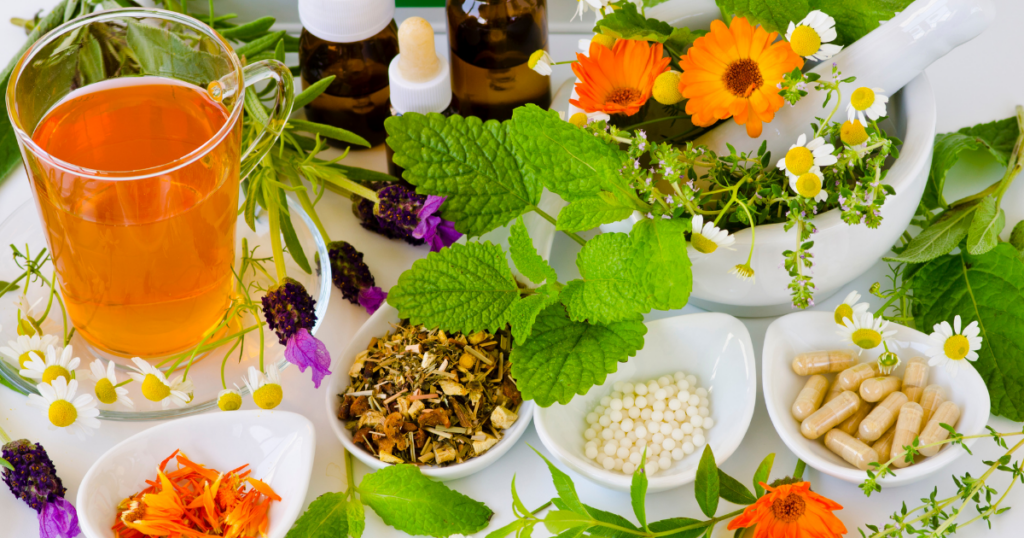
Recognition of the past seems to be the easiest part; remembering is hard. The thought of making a cup of chamomile tea before bed or slathering on some aloe vera gel after getting too much sun isn’t quite as prevalent as it used to be. However, this isn’t because there are only two herbs that help us relax.
There has been healing with plant life for centuries across cultures and continents far more than boiling leaves will do justice to. These remedies deserve exploration themselves, so let’s dive into them and also talk about ways other than hot water infusion they might work.
What herbs are known for their healing properties?
Herbs like turmeric, ginger, echinacea, and chamomile are renowned for their healing properties. They are used to reduce inflammation, boost the immune system, and promote relaxation, offering natural remedies for various ailments.
Turmeric contains curcumin, which is a good anti-inflammatory chemical that would prove immensely useful against diseases like arthritis. Ginger aids digestion and relieves nausea, while echinacea develops the immune response traditionally used to ward off the common cold. Chamomile is a calming agent that induces sleep and lowers anxiety.
These herbs offer non-pharmaceutical ways of assisting the body’s natural healing processes by applying some of the oldest practices in human history. Their effectiveness establishes insurance for their inclusion in holistic health practices, not only by traditional use but also by modern research.
How does turmeric promote healing?
Turmeric promotes healing through its active compound, curcumin, which has powerful anti-inflammatory and antioxidant properties. It helps reduce joint pain, improve digestion, and support overall health, making it a popular choice for natural healing.
Turmeric Curcumin inhibits inflammatory pathways and hence relieves arthritis and other inflammatory diseases by its anti-inflammatory properties. Curcumin reduces oxidative stress through its antioxidants that areutralise free radicals and improve the health of the cell.
This herb also supports liver function and aids digestion, making it quite versatile in natural medicine. Many of its benefits are well documented in scientific studies that prove its role in preventing chronic diseases and promoting longevity. The inclusion of turmeric in diet or supplementation will, therefore, greatly enhance holistic health practices.
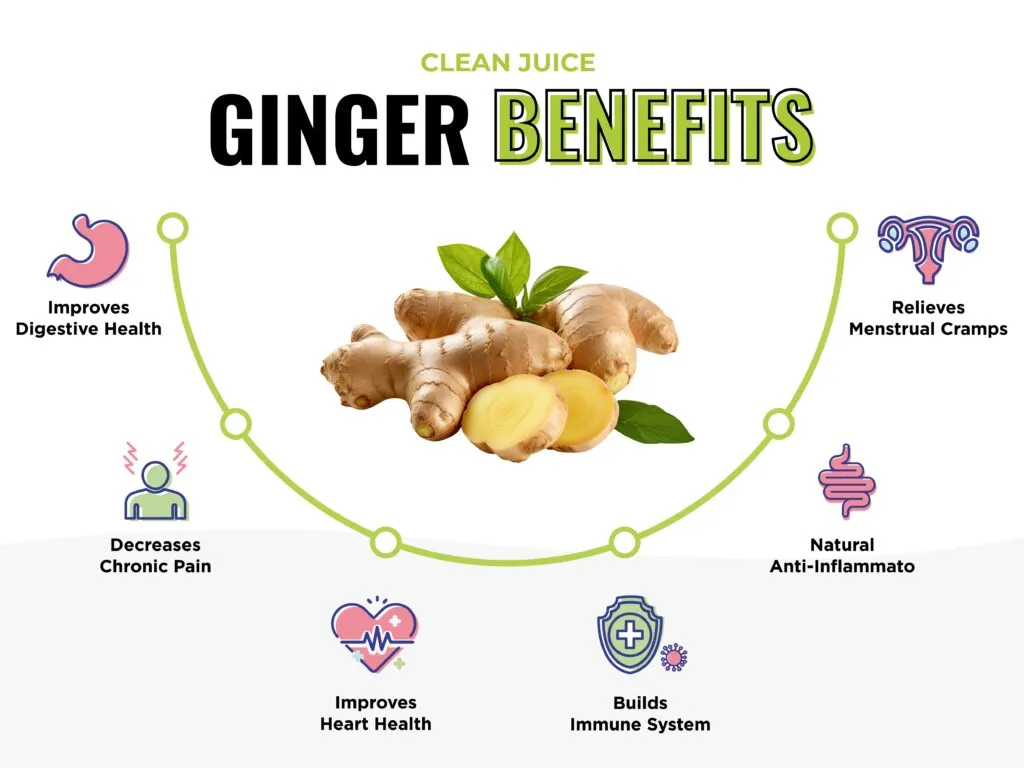
What are the healing benefits of ginger?
Ginger offers healing benefits by reducing inflammation, relieving nausea, and improving digestion. It contains gingerol, which has anti-inflammatory and antioxidant effects, making it effective in treating various ailments and promoting overall health.
Gingerol is a bioactive compound present in ginger that has anti-inflammatory properties, which are useful in reducing muscle pain and soreness. Ginger is used to treat nausea and vomiting; it has equal potency in the treatment of morning sickness and chemotherapy-induced nausea. It also improves digestion by promoting the formation of saliva and bile.
These potential uses and efficiencies have made ginger a permanent component in many folk medicine systems, including Ayurvedic and Traditional Chinese Medicine, for so many years. Multifaceted health advantages help it acquire acute and chronic health situations and better overall well-being.
How does echinacea support the immune system?
Echinacea supports the immune system by stimulating immune cell activity and enhancing the body’s defense against infections. It is commonly used to prevent colds and flu, offering a natural way to boost immunity.
Many of the ingredients present in echinacea increase white blood cell activity, which helps the body fight infections. The herb is most effective during the first beginnings of a cold or influenza, reducing the duration and severity of symptoms. The herb also has antiviral and antioxidant properties that work towards good immunity.
Through the regular intake of echinacea, one can avoid frequent ailments and develop a good, healthy immune system, which is what makes it so popular in herbal medicine. Its immunostimulant properties are supported by research; hence, its use by traditional practitioners can be justified for good health and well-being.
What are the calming effects of chamomile?
Chamomile has calming effects due to its ability to reduce anxiety, promote relaxation, and improve sleep quality. Its natural compounds interact with brain receptors to induce a sense of calm and well-being.
It contains an antioxidant known as apigenin, which binds to some specific receptors in the brain to lessen anxiety and thus bring on sleep. It is used as a herbal therapy for treating insomnia, as this herb induces proper sleep without any adverse effects as associated with pharmaceuticals. It is also partly because of its anti-inflammatory properties, which aid in soothing digestive problems, thereby contributing to the sedative effect.
For this reason, regular infusion of herbal tea from this plant or supplementation improves a person’s mood and relaxes the body, making it a worthy addition to any daily wellness routine. Decades of use for its gentle yet effective calming properties have cemented its value in herbal medicine.

How does peppermint aid in healing?
Peppermint aids in healing by alleviating digestive issues, reducing headaches, and providing relief from muscle pain. Its active ingredient, menthol, offers cooling and soothing effects, making it a versatile herbal remedy.
The menthol in peppermint relaxes the muscles of the gastrointestinal tract and relieves IBS and indigestion. It increases the airflow in the nasal passages, which reduces headaches and migraine pain. The cooling sensation in menthol relieves aches and tension in the muscles, thus improving its pain-relieving properties.
In aromatherapy, peppermint applies well due to its refreshing scent, which imparts impetus to energy and alertness. Its uses for both internal and external treatments place it foremost in the realm of alternative healing systems by offering a multi-dimensional approach to health.
What role does lavender play in healing?
Lavender plays a role in healing by reducing stress, improving sleep quality, and relieving pain. Its essential oils have calming effects, promoting relaxation and emotional well-being.
Linalool and linalyl acetate make major contributions to the calming effects of lavender. These work on the nervous system to lower stress and anxiety levels. Lavender is used in aromatherapy to induce proper sleep among those who find it hard to get good sleep or suffer from insomnia. Topically applied, the oil can relieve inflammation and reduce pain, which aids in the healing of minor burns or insect bites.
The scent is also an uplifting mood elevator and works to create relaxation, so it is very effective for alleviating stress and emotional balance. The aura surrounding lavender for its multifaceted healing made it a staple in herbal medicine; it does not only have a soothing effect on physical ailments but also on mental health.
Wrapping Up!
The planet of herbs is vast and goes far beyond what we put in our teacups. With topical applications, culinary practices, and even aromatherapy used correctly these powerful plants can greatly contribute towards overall well-being. There are no panacea plants that will fix everything, still, they offer great rewards when explored properly. Responsible usage coupled with self-awareness through individual needs assessment plus professional consultation as required should thus be the main focus.
Herbal Medicine
Herbal medicine is a treatment method that uses plants’ healing properties by concentrating them into different forms in order to heal various diseases or improve general well being. It is among the oldest known systems of care.
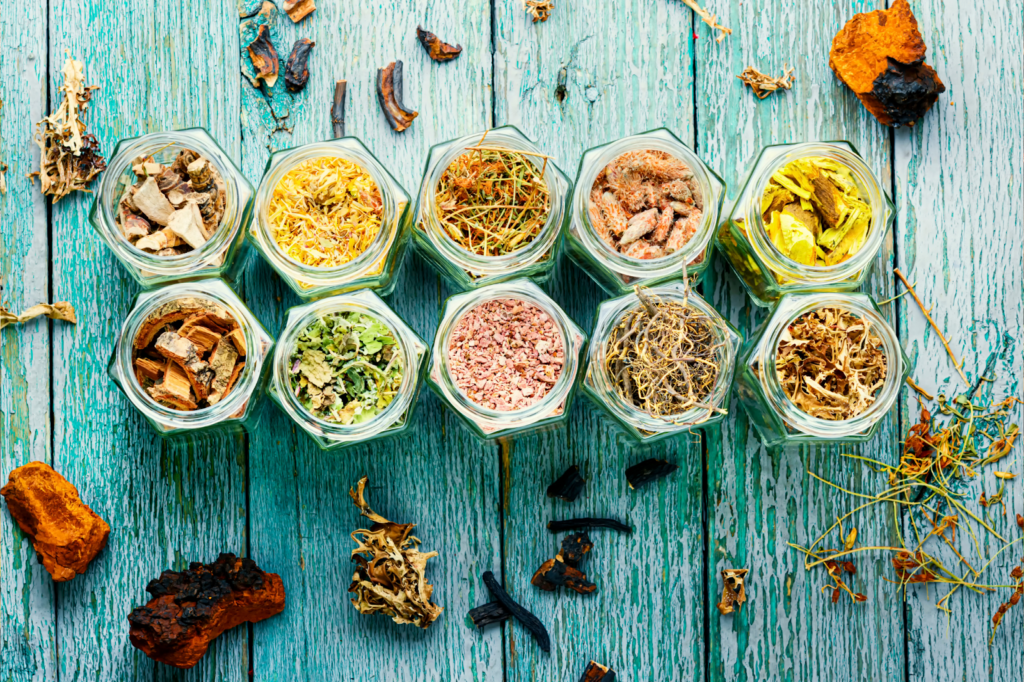
Herbs have been used for treatment in different cultures across the world for ages. There are various plants with medicinal qualities, but some stand out due to their exceptional healing capacity.
Is Aloe Vera A Burn Soother?
Yes, aloe vera can soothe burns by reducing inflammation and promoting healing, thanks to its cooling and moisturizing properties. However, severe burns require medical attention.
This plant species is known for its healing characteristics. The gel found in its leaf is very effective in treating skin irritation, burns, and cuts. Aloe vera contains minerals, vitamins, and amino acids to enhance skin regeneration. It also has anti-inflammatory properties.
When applied topically it can help relieve sunburns, minor cuts and stings from insects. It can also help manage skin issues like psoriasis and eczema. However, when it comes to consuming its juice, its effectiveness requires more research.
Is Echinacea An Immunity Booster?
Echinacea may help boost immunity by stimulating the immune system and reducing the duration of colds, though evidence on its effectiveness is mixed.
The flowering plants belong to the daisy family and are called Echinacea. It is believed to enhance immunity. The Native Americans started using it to treat different ailments. In the 20th Century, it became popular in the West.
According to studies conducted, echinacea might be helpful for decreasing intensity of common cold symptoms alongside making them last shorter than usual. It works by increasing production & activity of white blood cells and stimulates the immune system.
Even though more research is required yet most alternative therapists suggest taking echinacea during autumn-winter seasons.
Is Ginger A Digestive Aid?
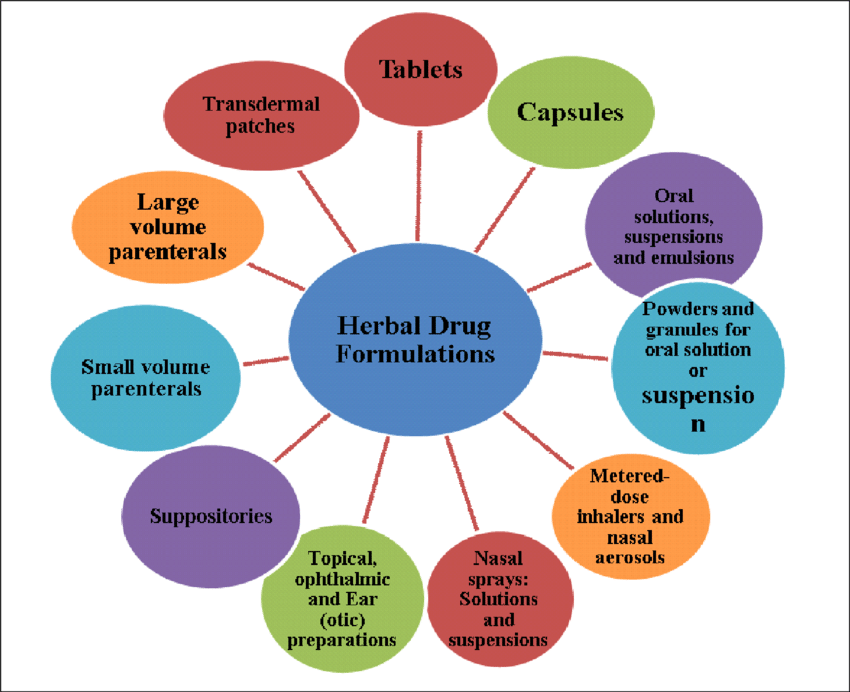
Yes, ginger is a digestive aid; it helps alleviate nausea, reduce bloating, and improve overall digestion by stimulating digestive enzymes and soothing the gastrointestinal tract.
A plant with attractive flowers and ginger rhizomes are herbs widely used as medicine. The reason behind the love of this sharp-tasting root is its usefulness for digestive purposes.
Gingers are very useful in controlling nausea whether it’s from pregnancy, motion sickness or chemotherapy. It also has anti-inflammatory properties that may help reduce muscle pain and soreness.
It has been argued that some studies suggest that ginger may have a role in managing arthritis symptoms and reducing blood sugar among diabetics.
Does Turmeric Have Anti-Inflammatory Properties?
Yes, turmeric contains curcumin, which has strong anti-inflammatory properties that can help reduce inflammation and support overall health.
This bright yellow spice, derived from the rhizome of a Zingiberaceae plant family member, has become famous because of its strong anti-inflammatory characteristics. Most health benefits of turmeric come from curcumin, an active compound found in it.
It is suggested through research that turmeric might be beneficial for reducing overall body inflammation making it helpful for those with conditions like cancer, inflammatory bowel disease or arthritis.
Some studies claim that its neuroprotective potential could slow down Alzheimer’s disease progression.
What is the best herb for overall health?
There is no single “best” herb for overall health, but adaptogens like ashwagandha and turmeric are widely regarded for their broad health benefits and supportive effects.
Turmeric is counted amongst one of the most useful herbs for good health. Its main active compound known as curcumin possesses antioxidant properties and has potential anti-inflammatory effects. It might also possess anticancer properties. It boosts up the immune system, helps in relieving joint pain and aids digestion process.
What are the 10 uses of medicinal plants?
Medicinal plants are used for treating infections, reducing inflammation, managing pain, enhancing digestion, boosting immunity, healing wounds, relieving stress and supporting overall wellness.
Medicinal herbs can help relieve pain, treat digestive issues, heal wounds, solve respiratory problems, reduce stress levels, enhance immunity, treat infections, increase sleep quality, manage chronic diseases, and boost cognitive functioning. They also offer skincare benefits
What Plants Heals The Soul?
Plants like lavender, chamomile, and rose can help heal the soul by reducing stress, promoting relaxation, and enhancing emotional well-being through their calming and soothing properties.
Lavender is known for spiritual restoration. Its scent can reduce anxiety, stress and worries. Lavender oil when used through diffusers can calm down anxiety and help people go to sleep and creates serenity within the soul.
What flower heals people?
Flowers like lavender and chamomile are known for their healing properties, offering stress relief, relaxation, and improved sleep through their calming and soothing effects.
The flower called Echinacea has healing properties and is especially great at enhancing immunity, managing colds and enabling one to heal from infections at a faster rate. Its compounds may decrease inflammation and improve overall health.
What plant can heal itself?
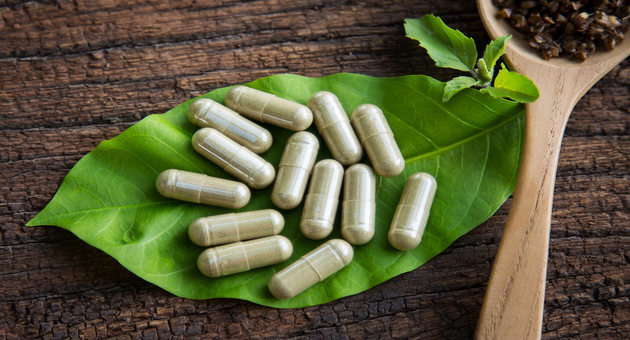
Aloe vera is known for its ability to heal itself. Its leaves can regenerate and produce new growth even after damage, showcasing its self-healing properties.
Aloe-vera is a self healing plant and can grow back its leaves even after they dry up. Its soothing gel can heal burns and cuts. It can heal minor injuries through a regenerative process.
Which plant removes negativity?
Plants like sage and rosemary are believed to remove negativity through their cleansing and purifying properties, often used in smudging rituals to clear energy.
To eliminate negativity people use sage in smudging. Smudging involves burning sage to disperse bad vibes from an environment, heal emotionally, cleanse energies and create positive spaces.
What is that plant that heals everything?
No single plant heals everything, but aloe vera is highly versatile, known for its broad range of benefits including wound healing, skin care, and digestion support.
There isn’t one specific plant that can heal anything but neem oil has many general medicinal properties attached to it. Neem treats skin ailments, prevents infection, maintains dental hygiene and works as a detoxifier.
What plant heals the heart?
Hawthorn is known for its potential to support heart health, improve circulation, and strengthen the heart muscle through its cardiotonic and antioxidant properties.
The major property of hawthorn is its heart-healing abilities. By improving blood flow, lowering blood pressure, and strengthening the heart muscle. Hawthorn promotes cardiovascular health. It remains common in herbal medicine reference books when treating any heart illness.
What plant heals your lungs?
Eucalyptus is known for its ability to support lung health by easing respiratory issues, reducing inflammation, and acting as an expectorant to clear congestion.
Eucalyptus has benefits for lung health. The essential oils derived from eucalyptus help with respiratory problems like coughs or congestion. When used topically or ingested it acts as an expectorant. Additionally it inhibits growth of pathogens in the respiratory system thereby enhancing breathing.
What is the most healing house plant?
The snake plant is considered highly healing for homes, as it purifies the air, removes toxins, and improves indoor air quality, promoting overall well-being.
Sansevieria (snake plant) takes precedence among all houseplants in terms of being curative. Sansevieria absorbs toxins such as formaldehyde and benzene found in indoor air thereby purifying it. It releases oxygen at night thus enhancing air quality while sleeping.
Conclusion
Although these plants have shown potential for healing, it is essential to remember that herbal medicine should never be abused. Always consult a physician prior to beginning any new herbal regimen, especially if you suffer from any medical conditions or are taking medication. Nevertheless, when rightly used, such healing plants can become beneficial components in a broader approach to health and wellbeing.
